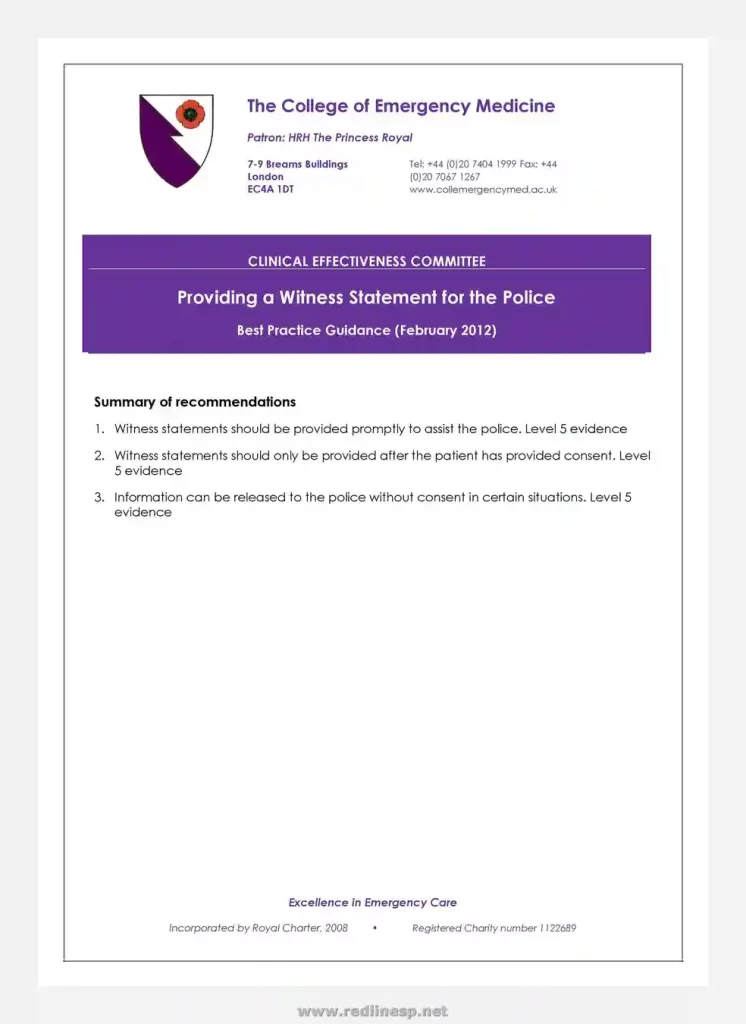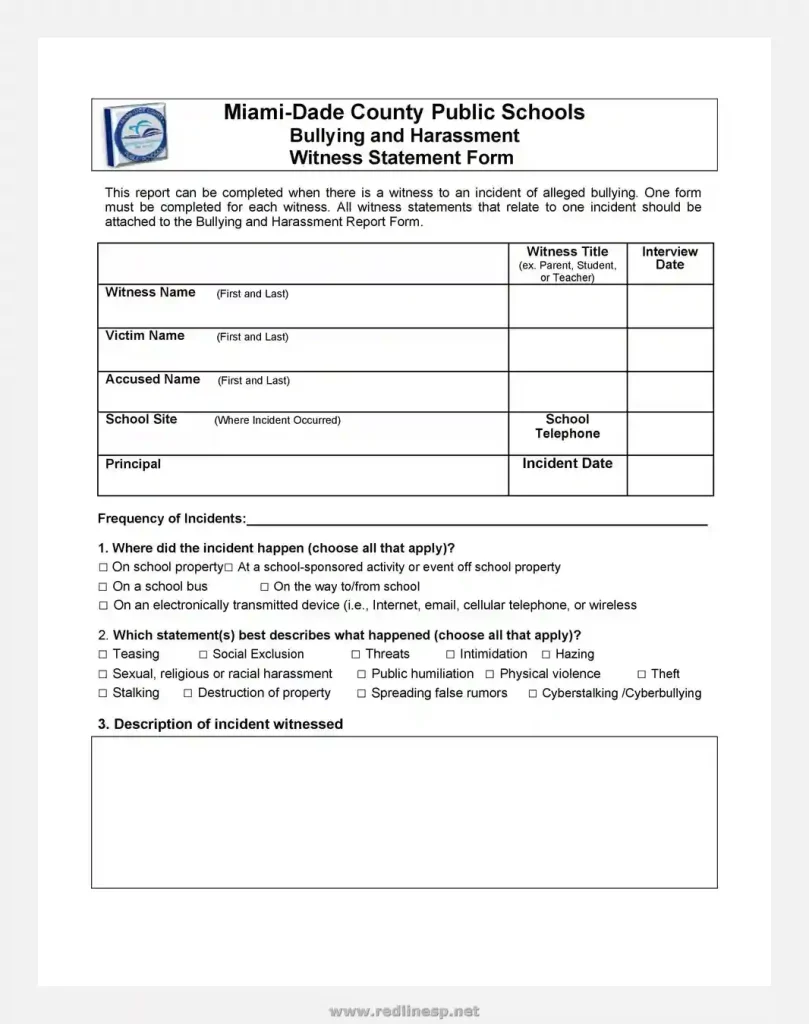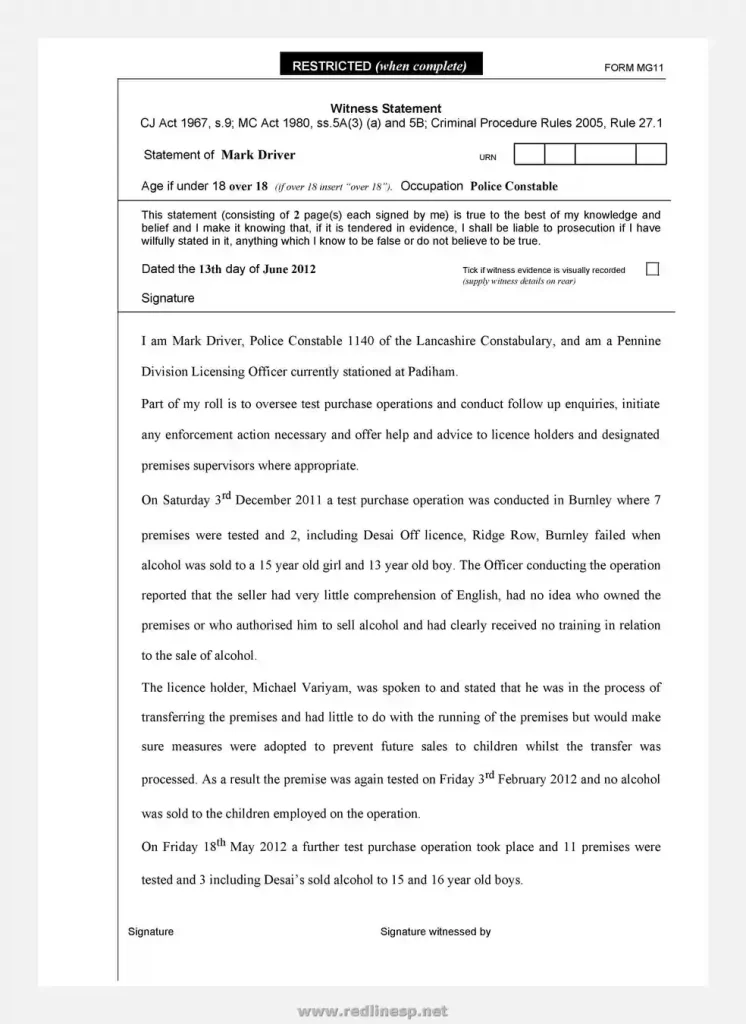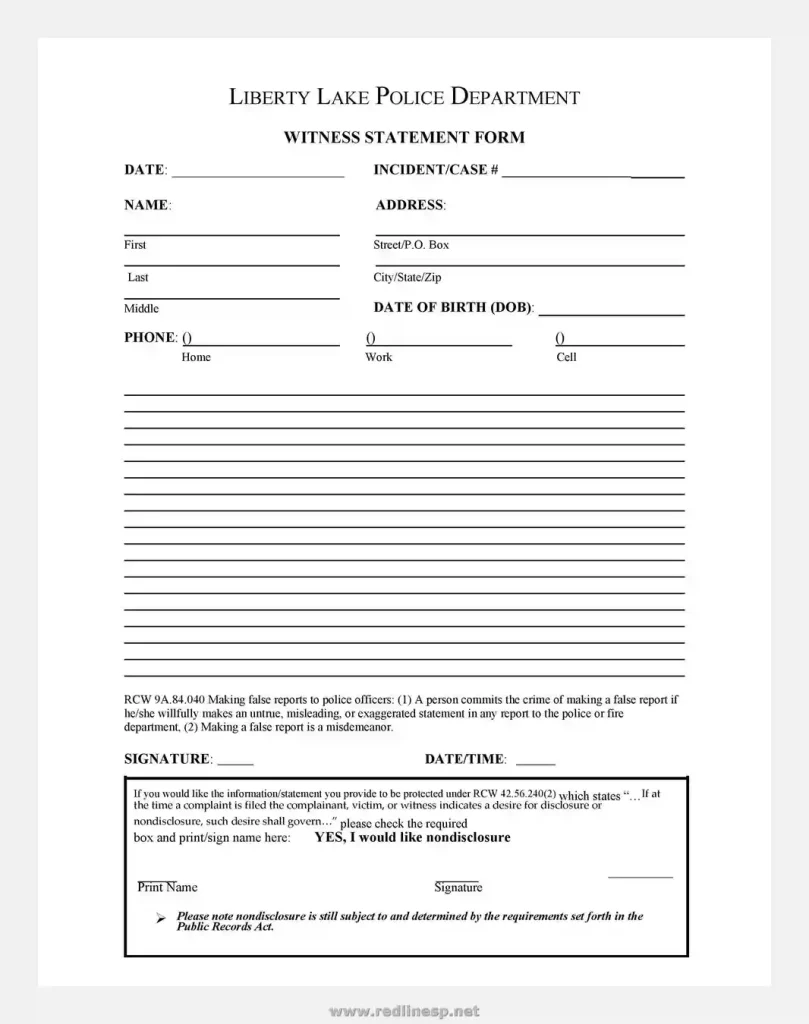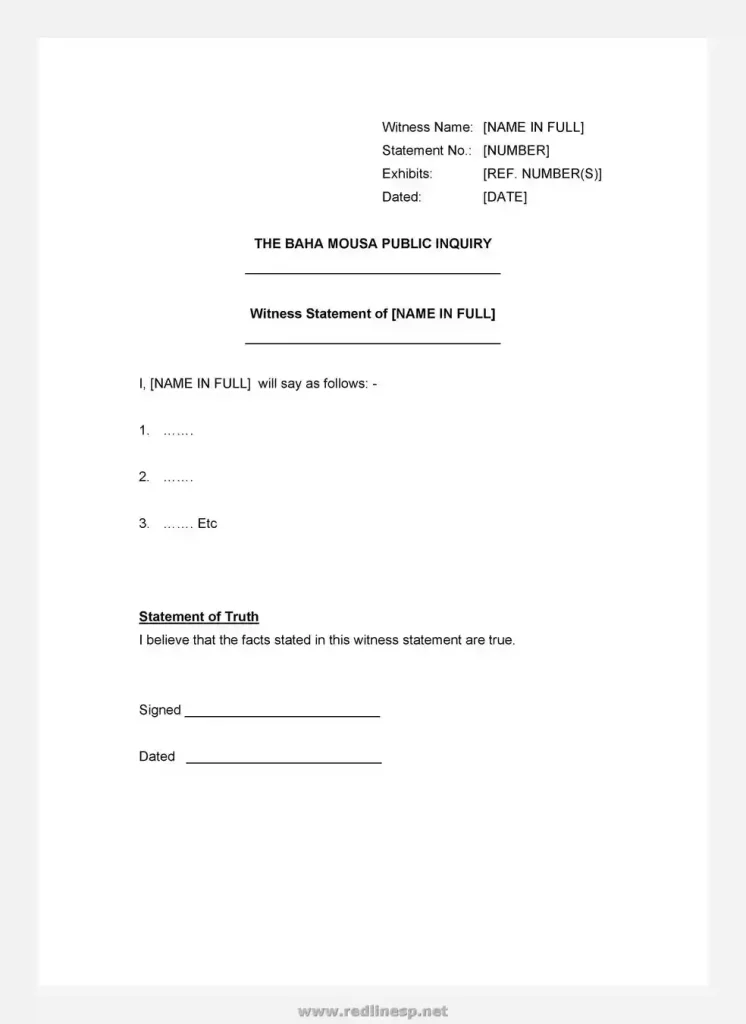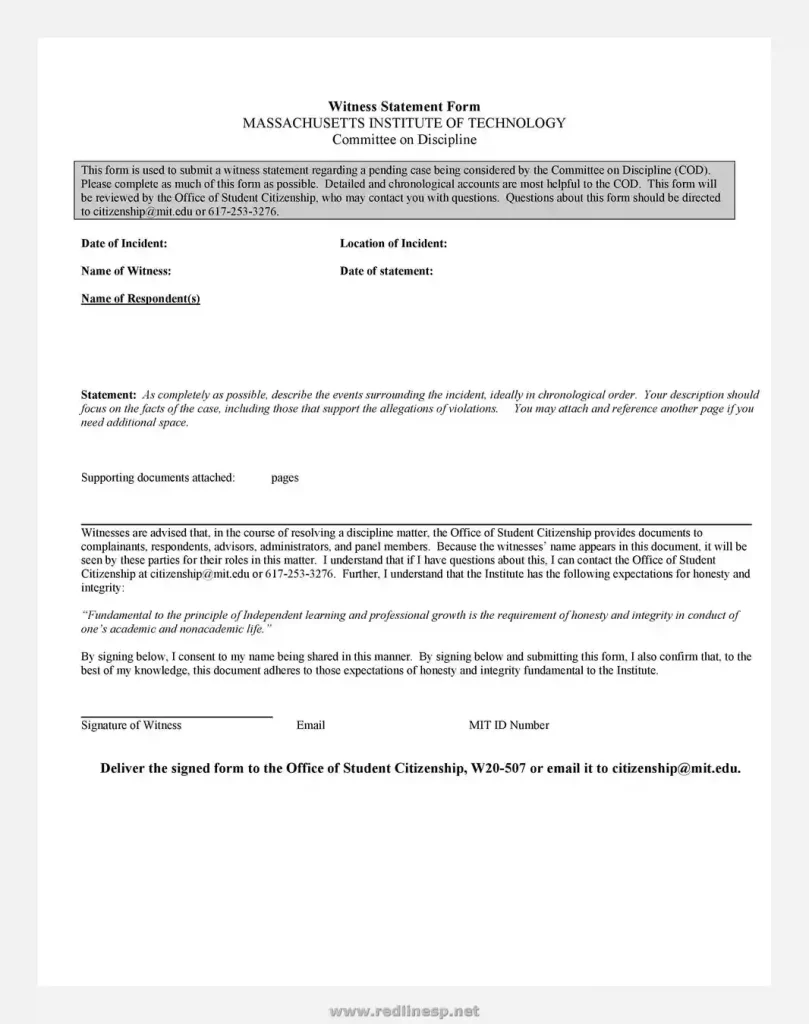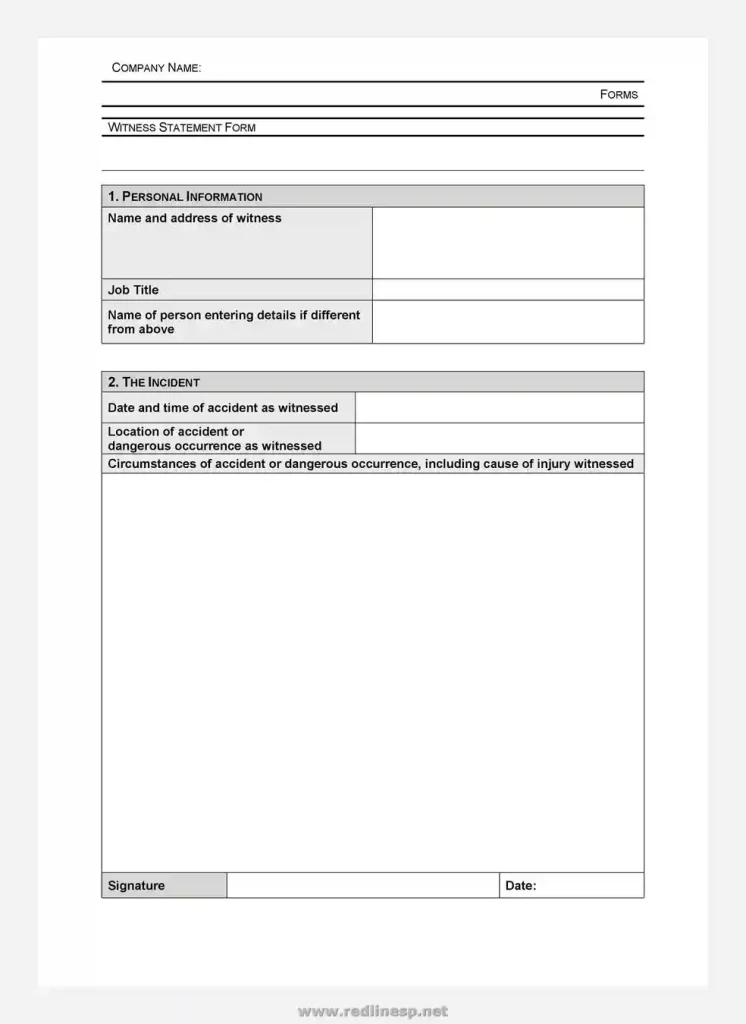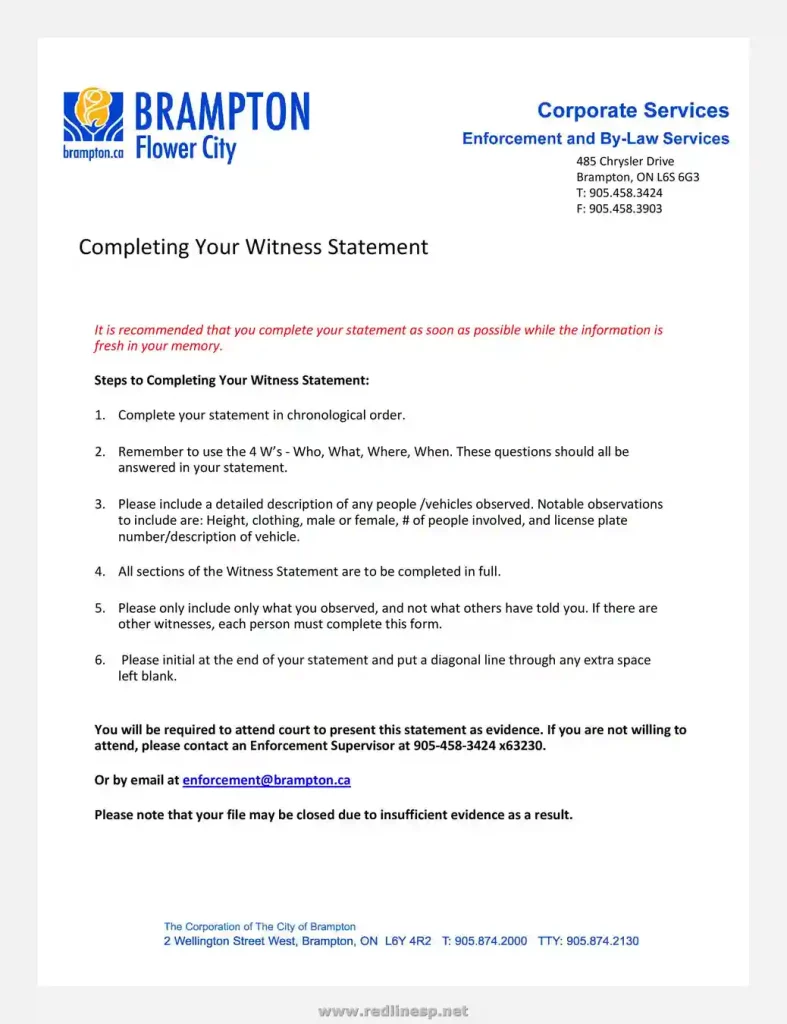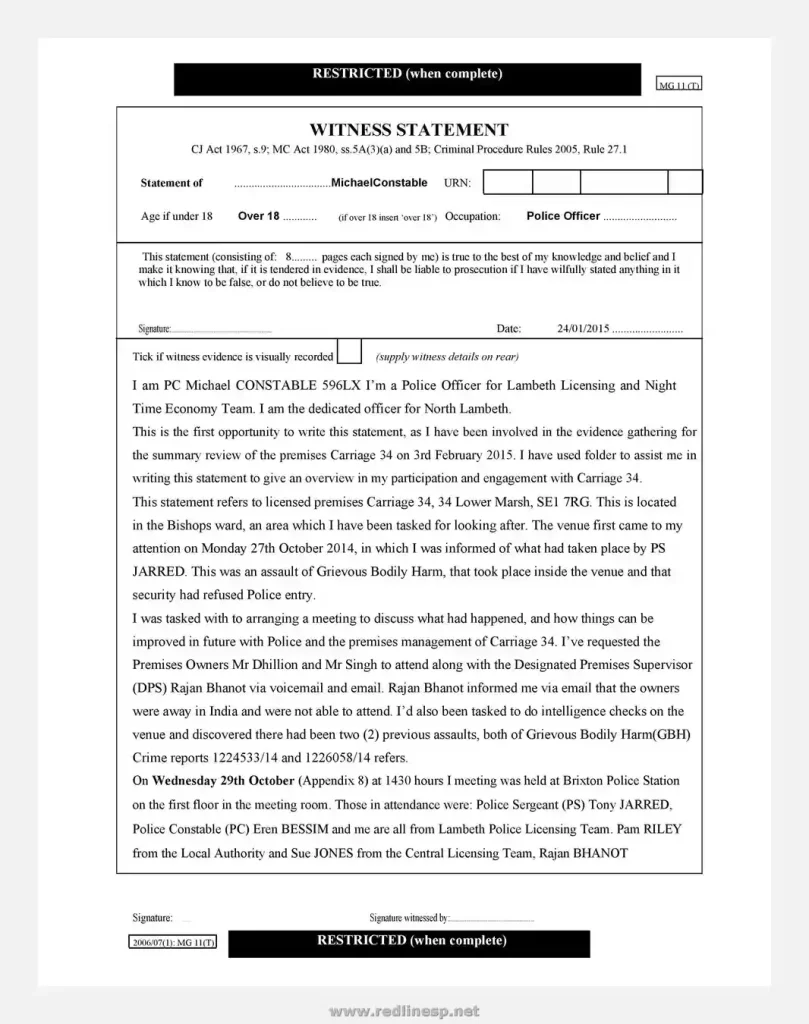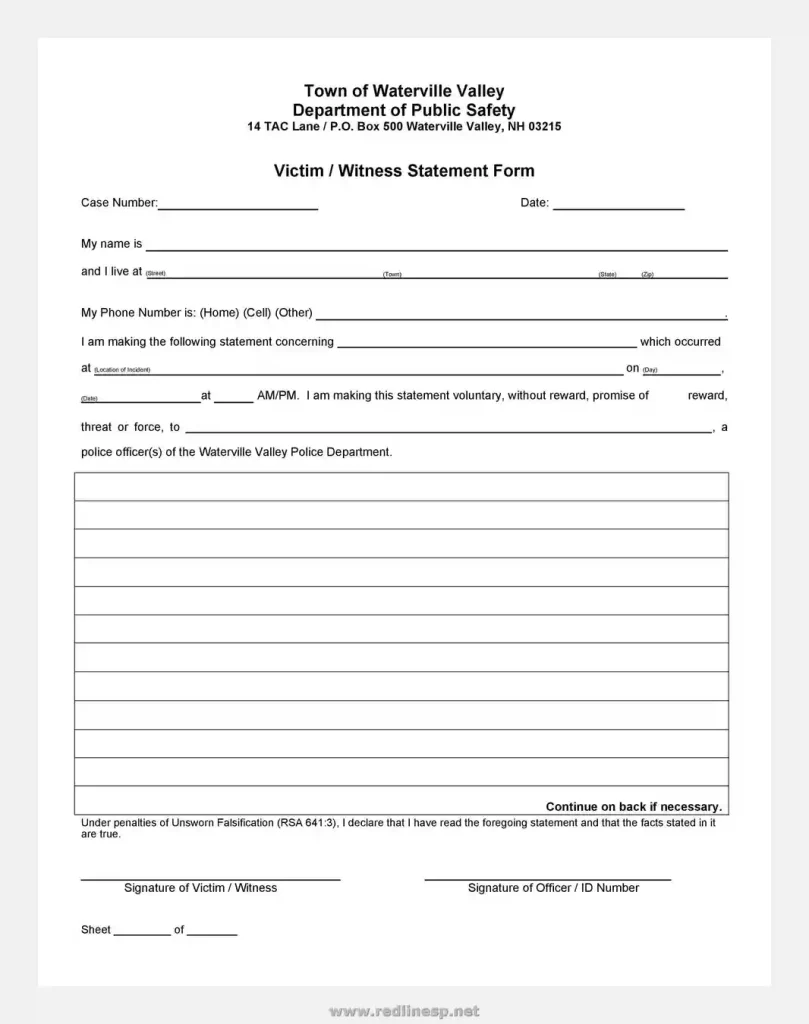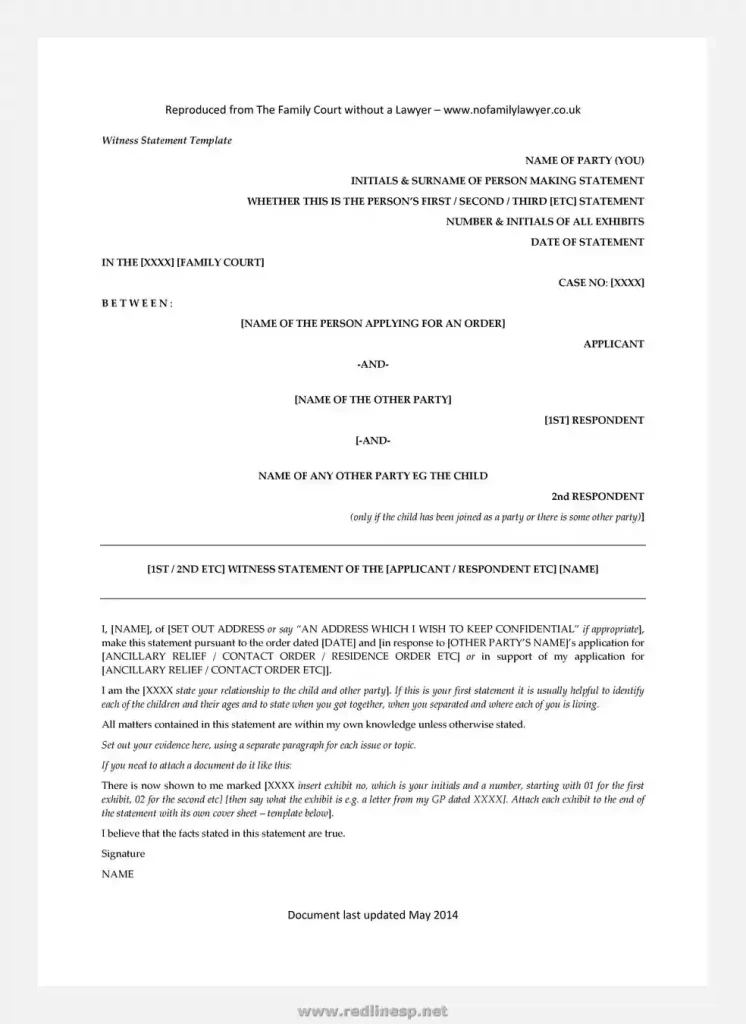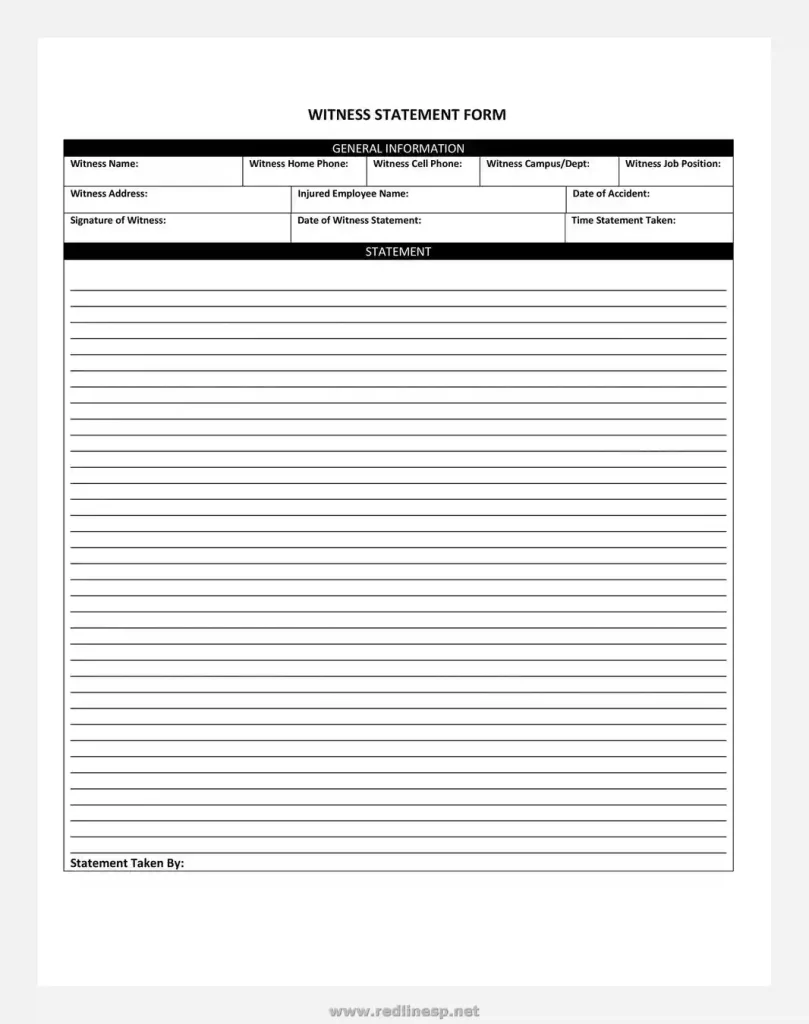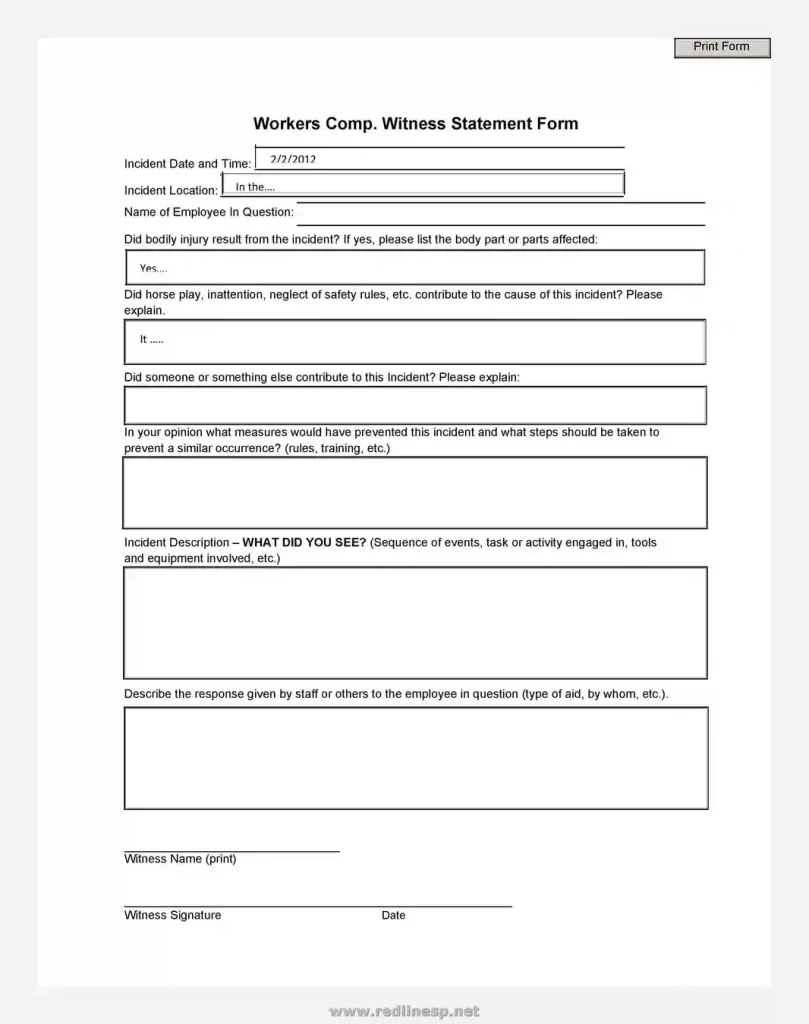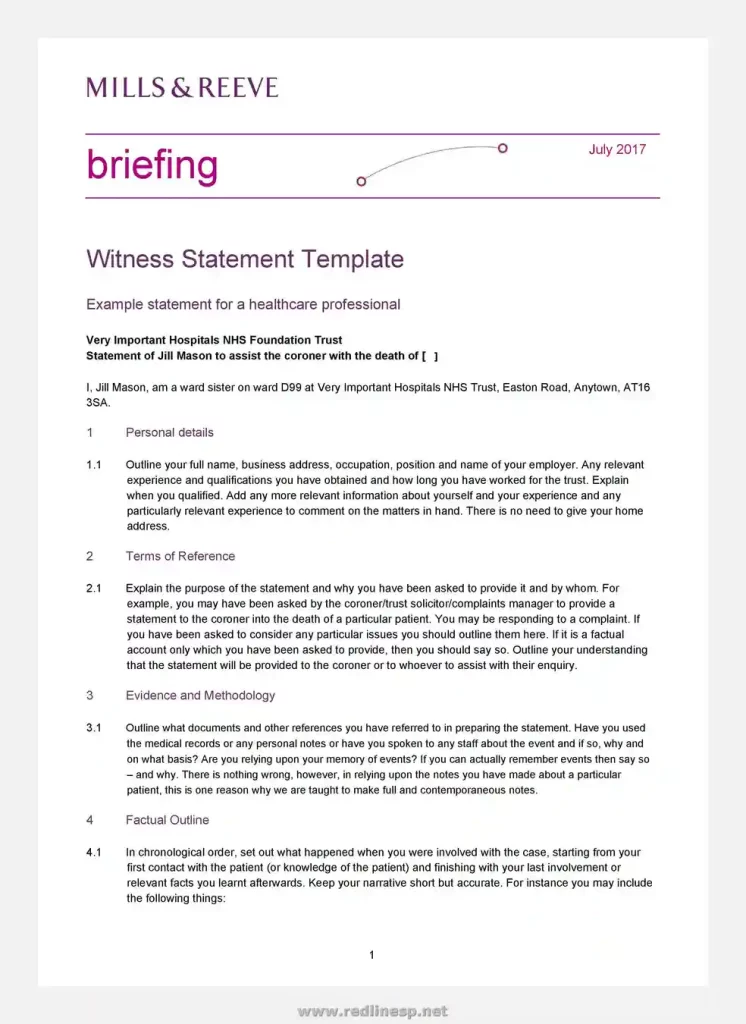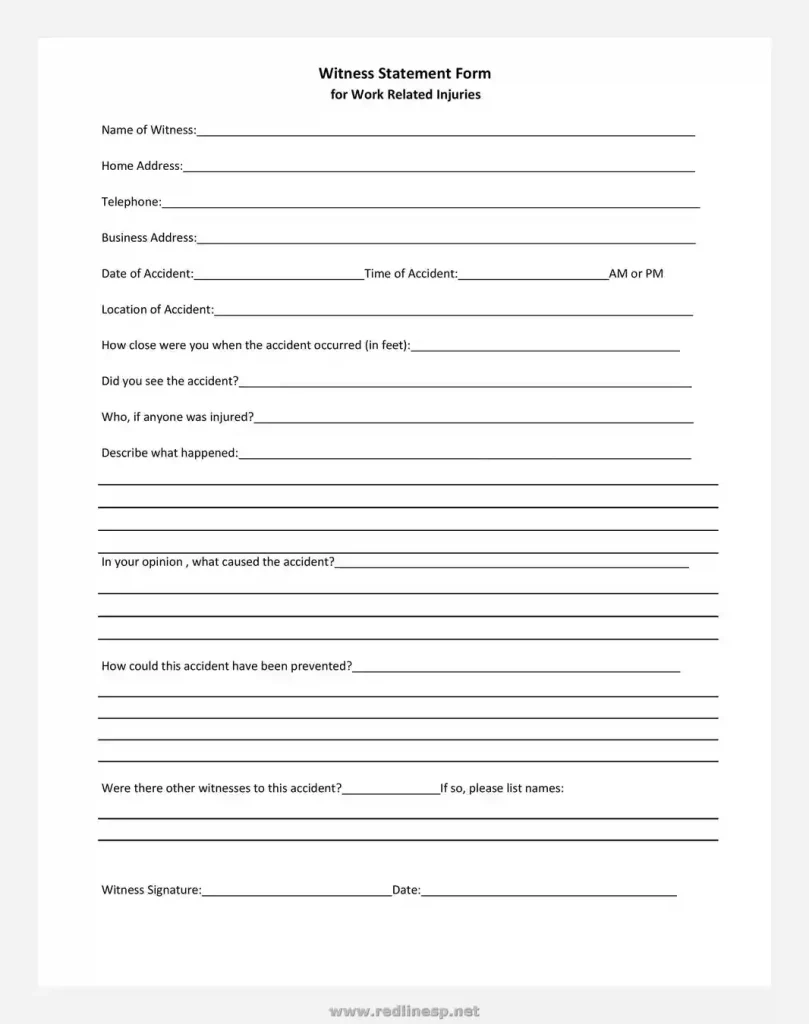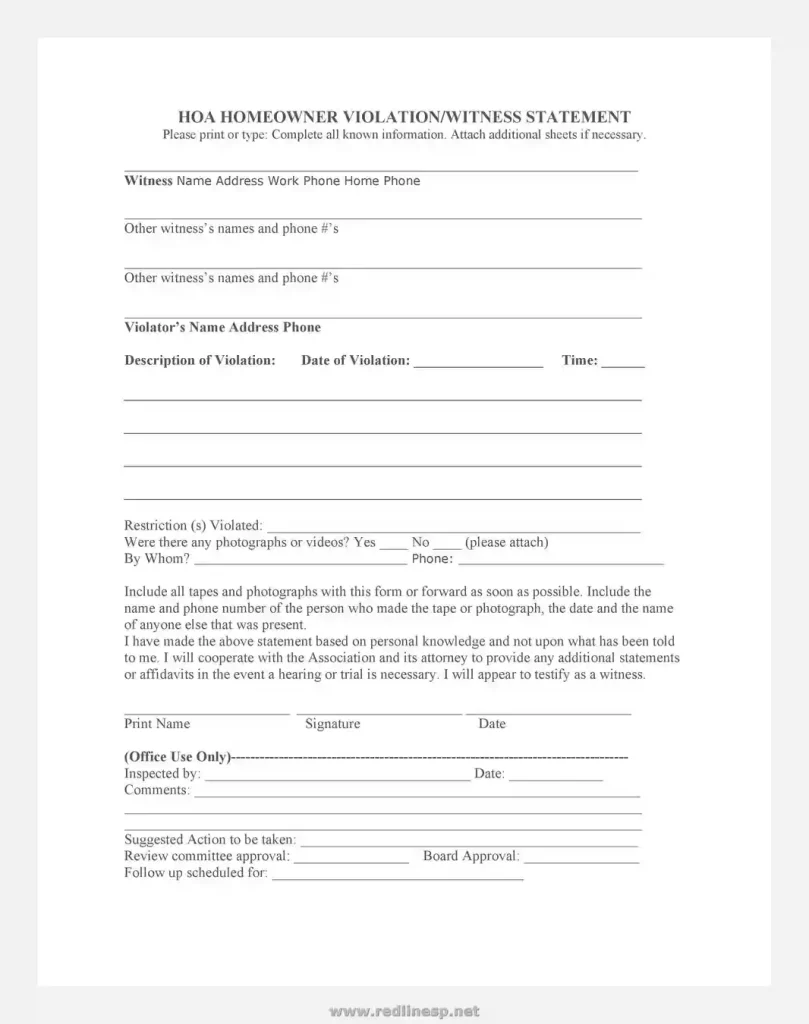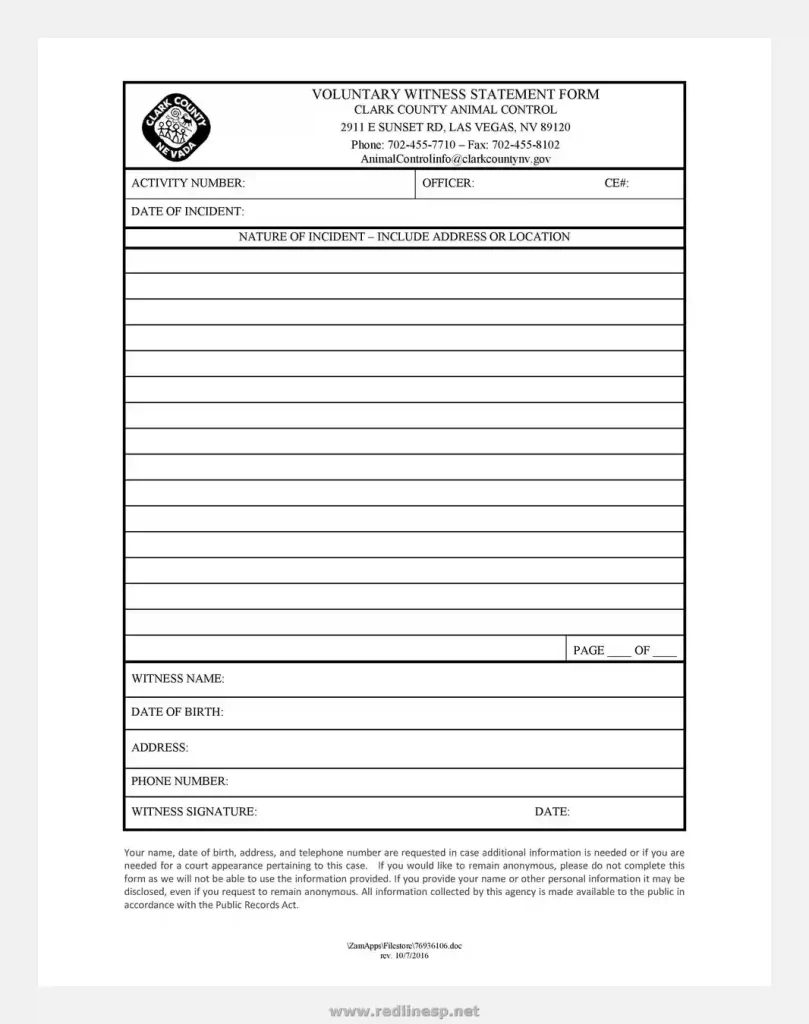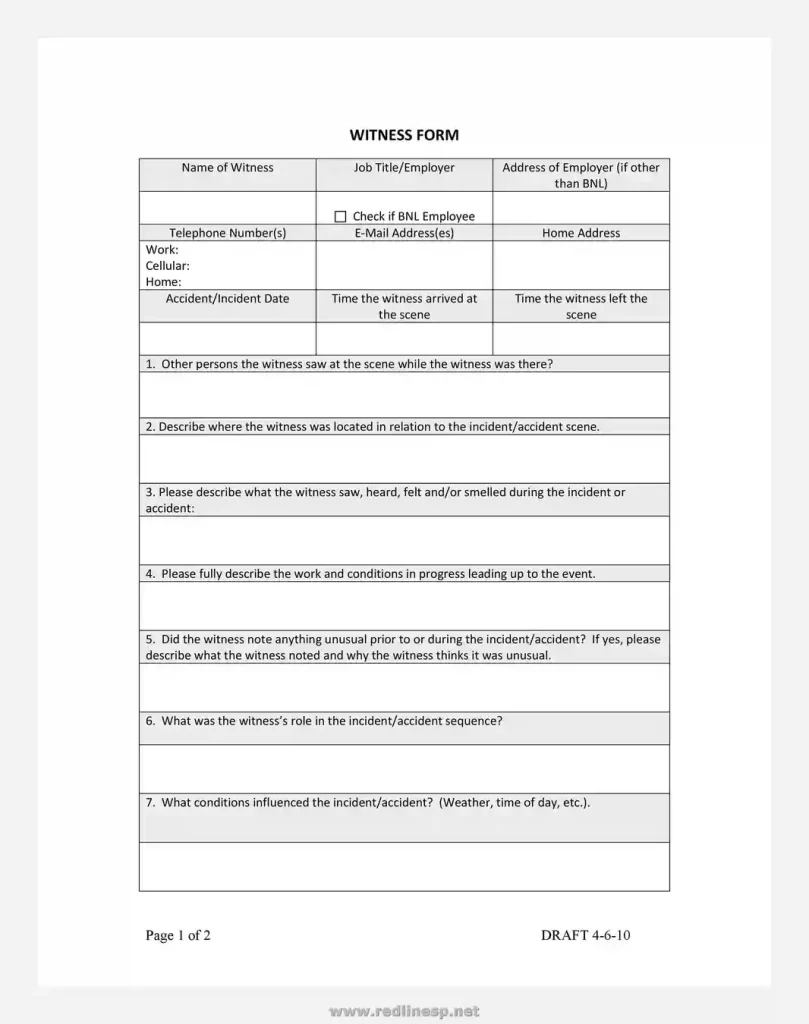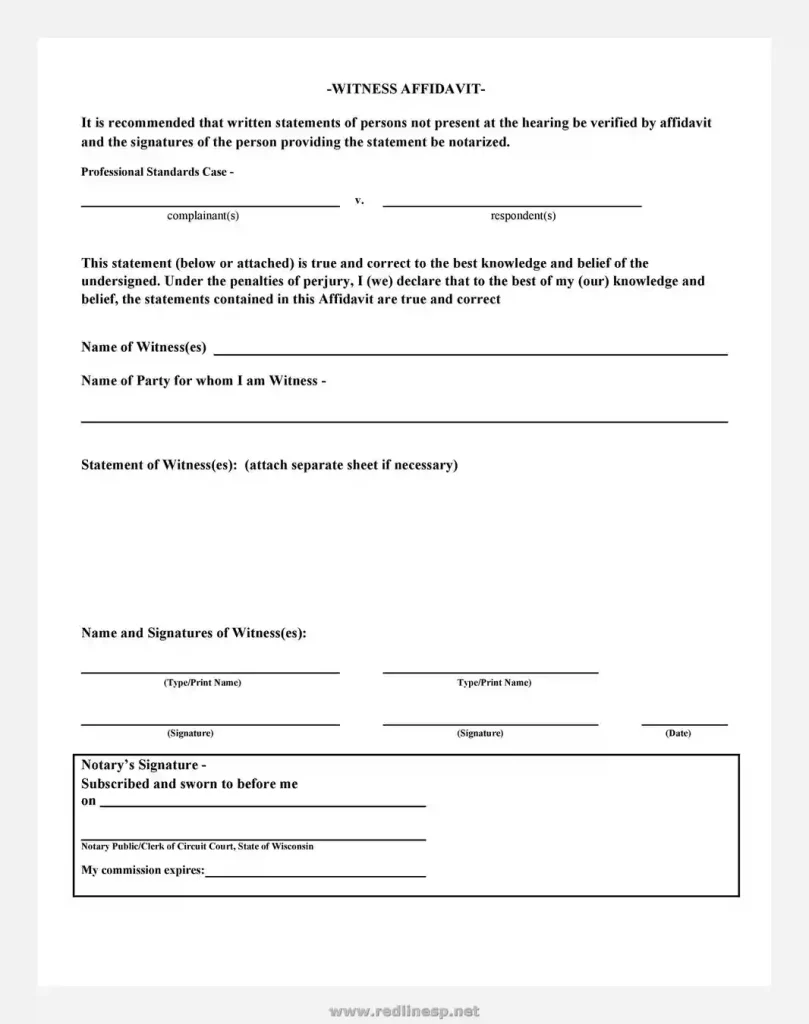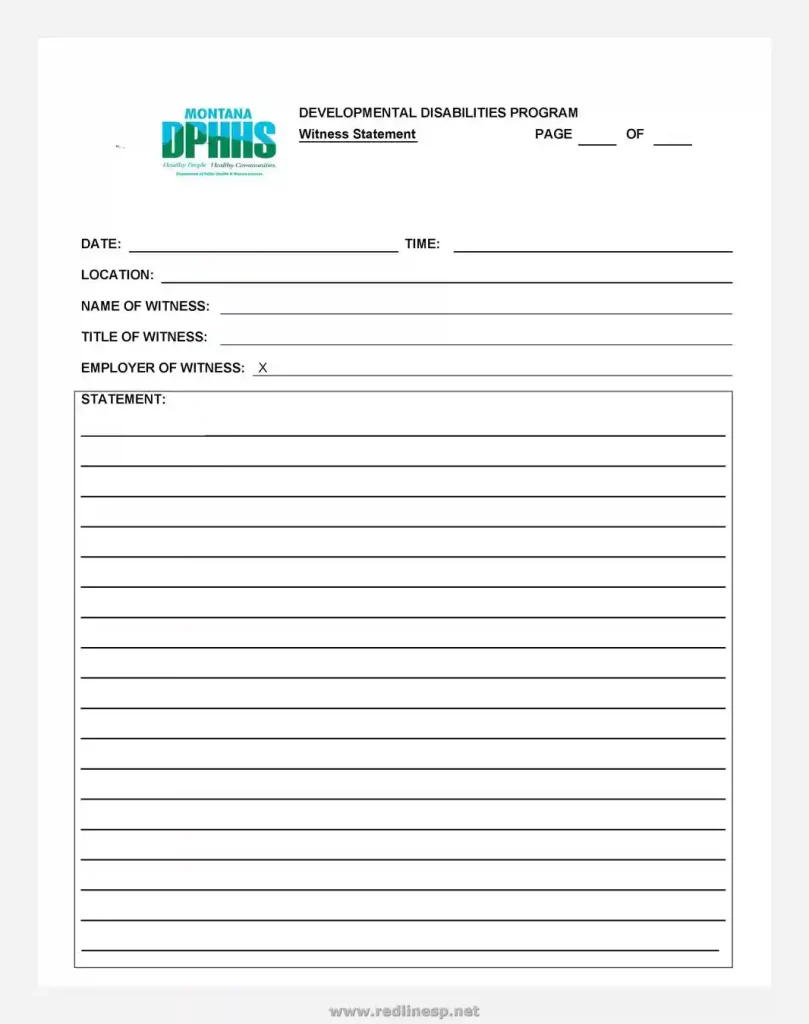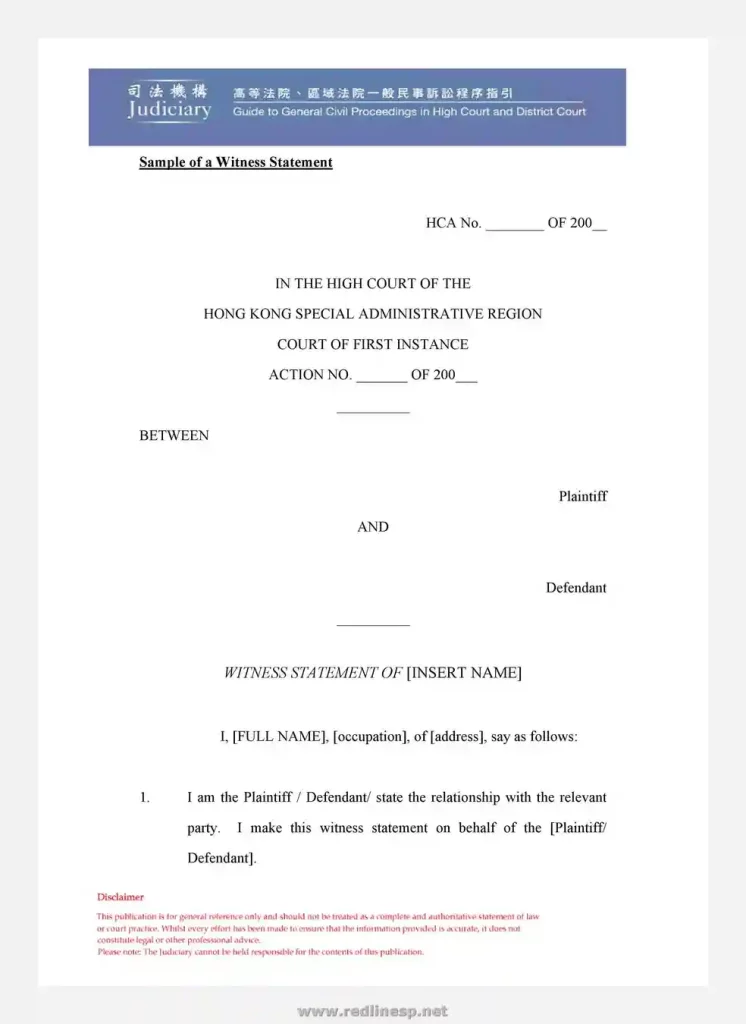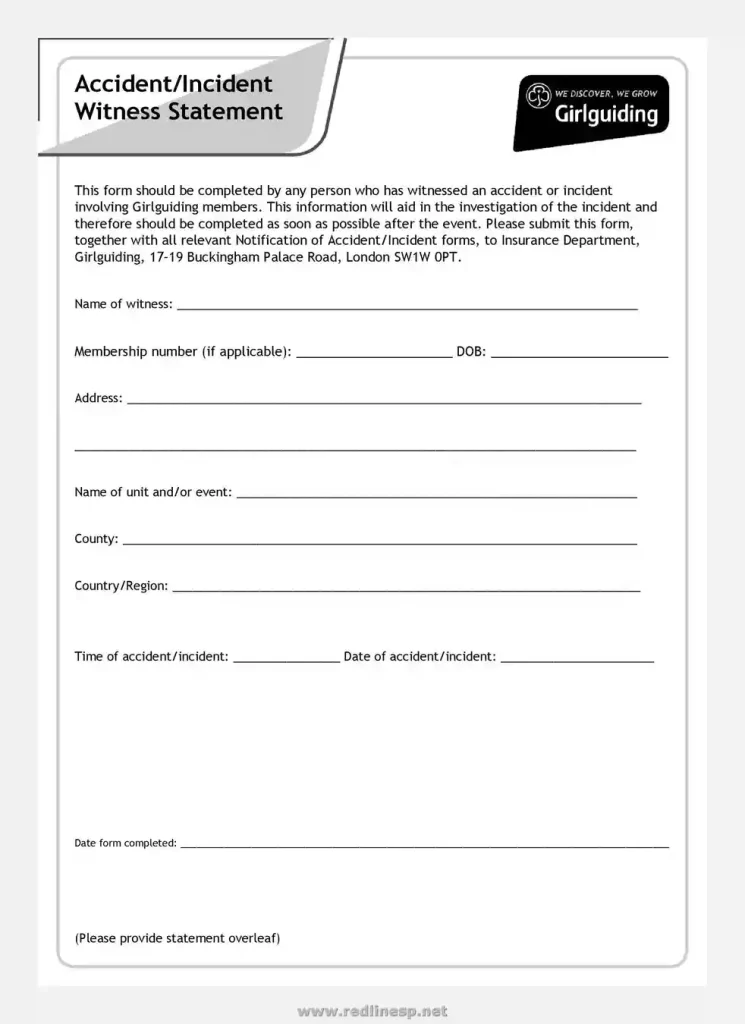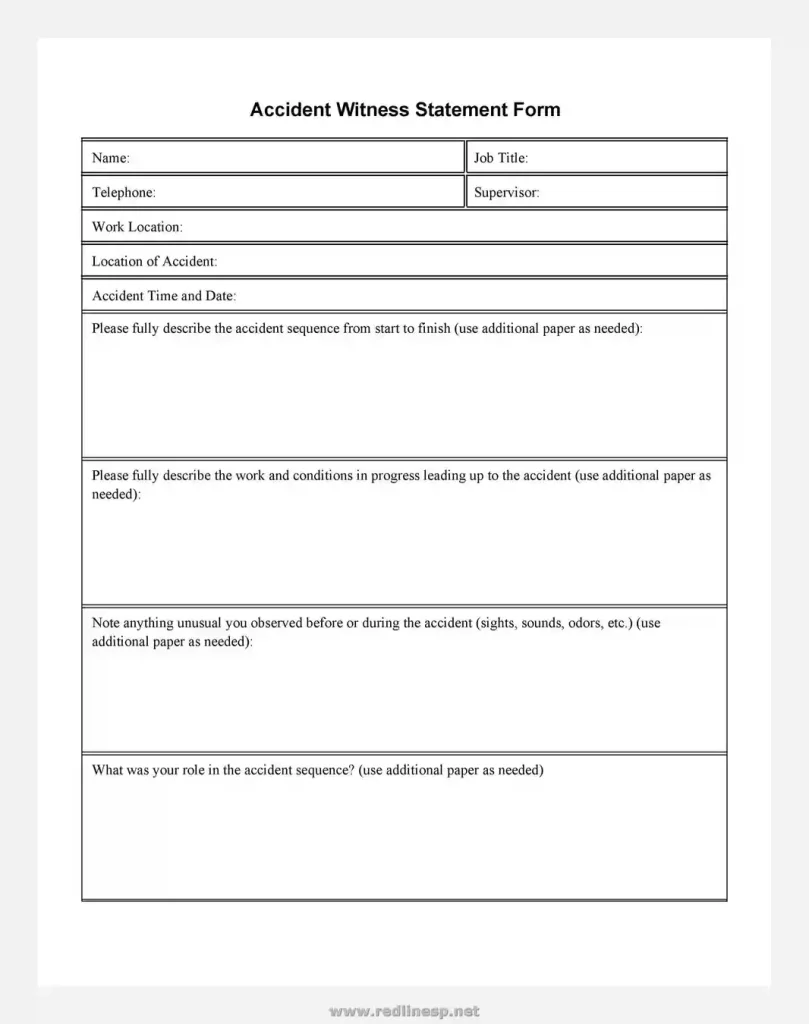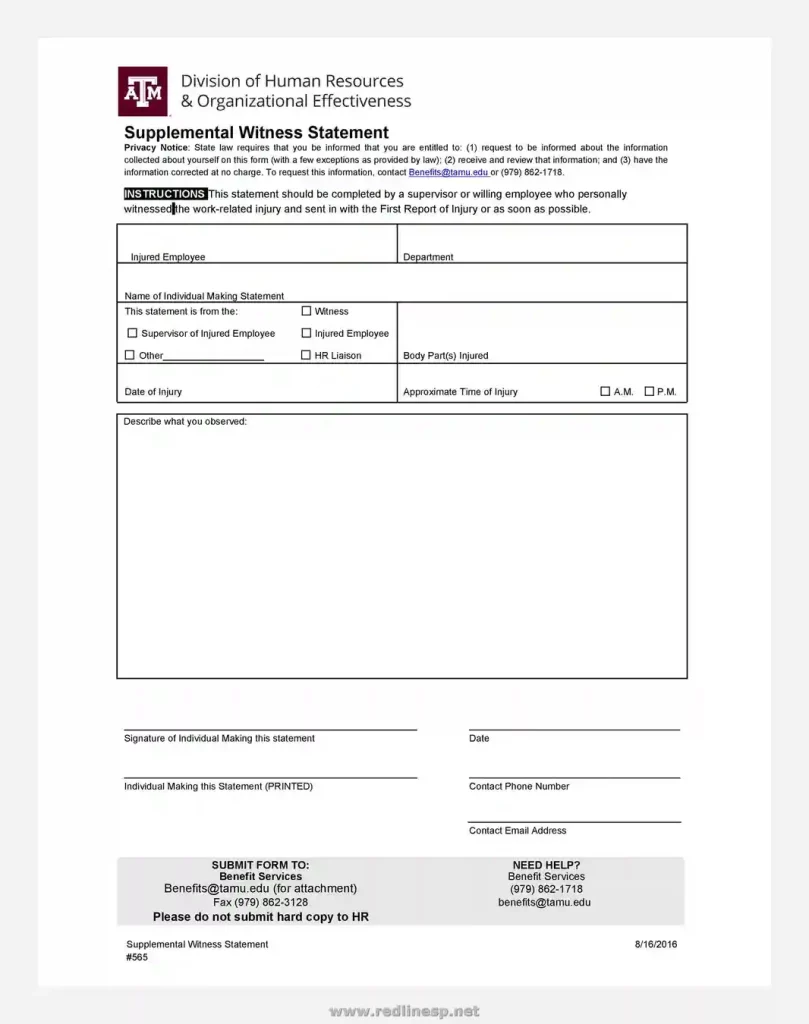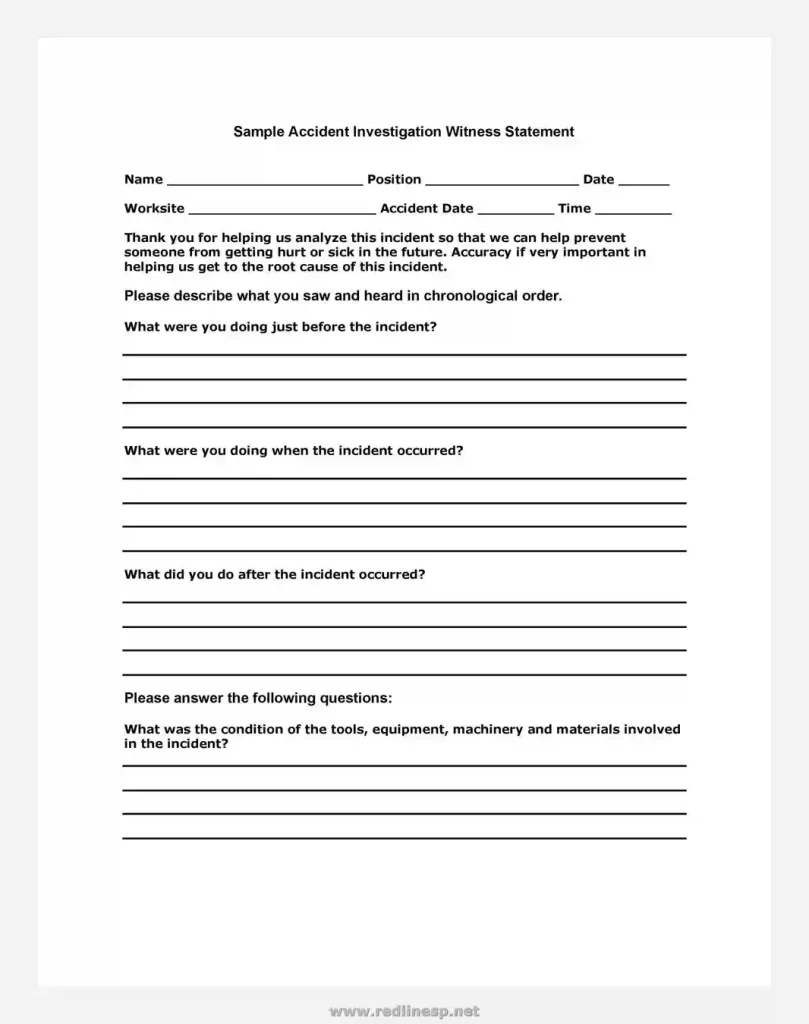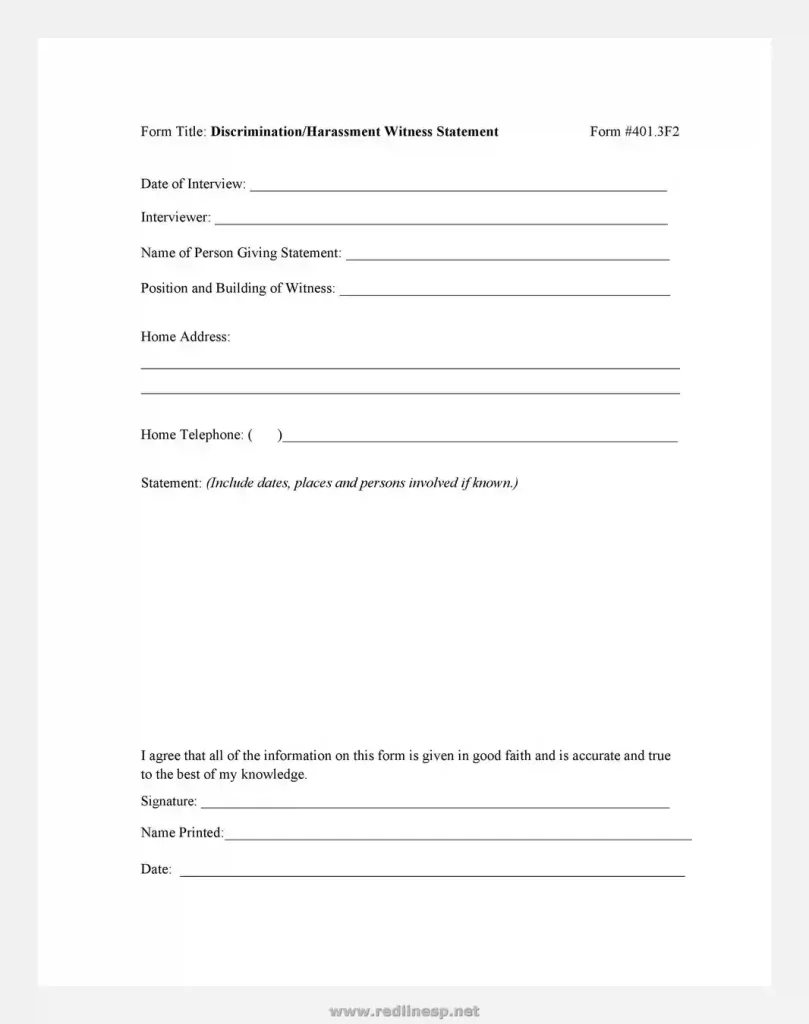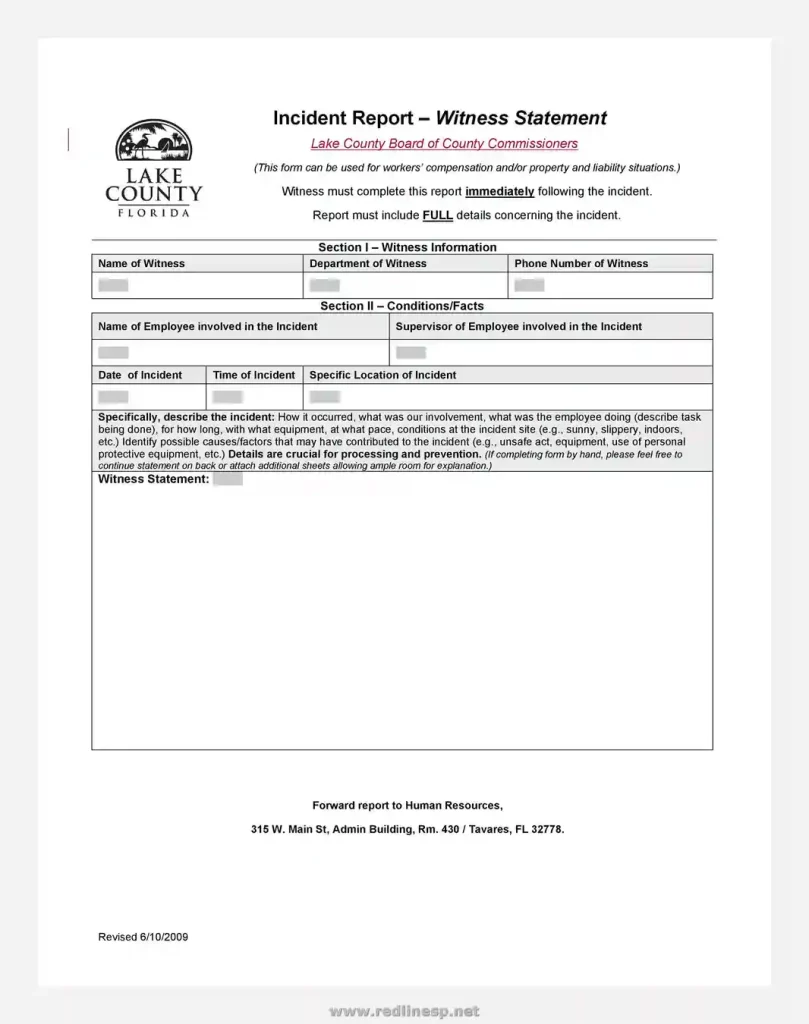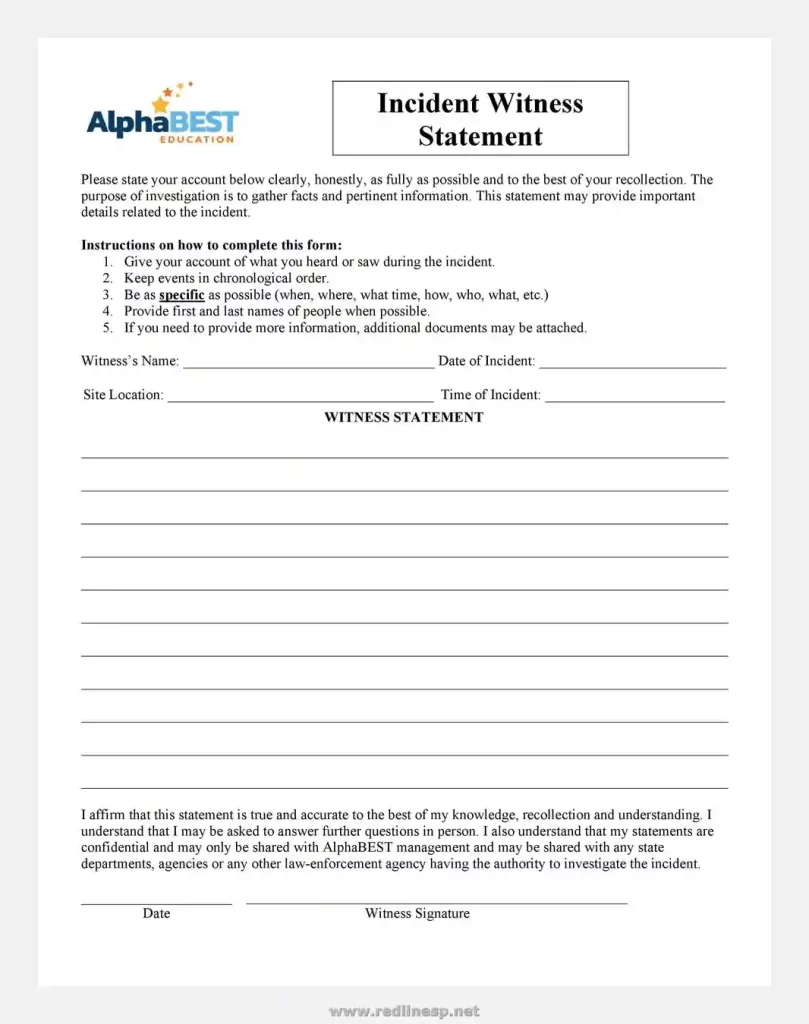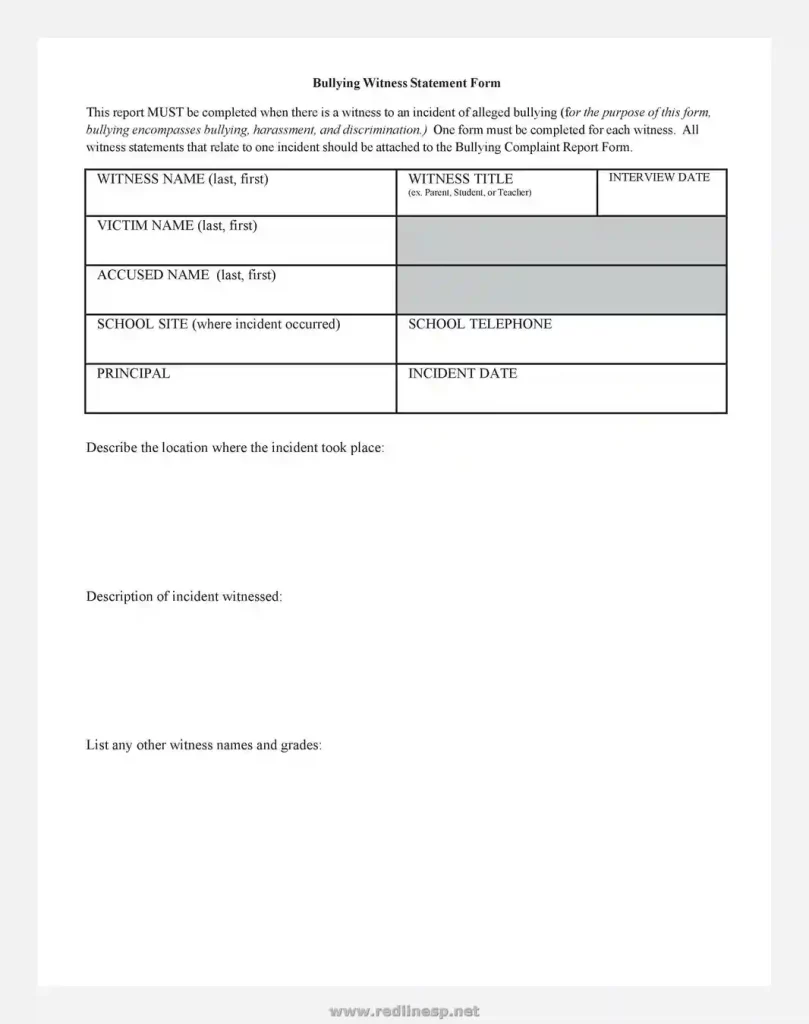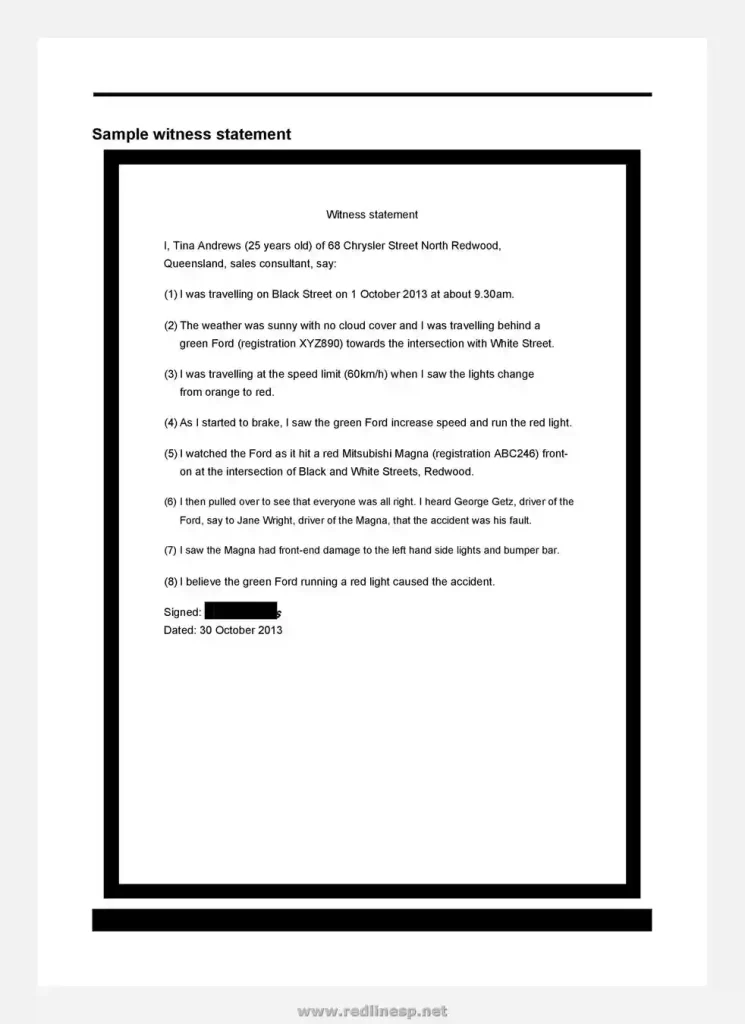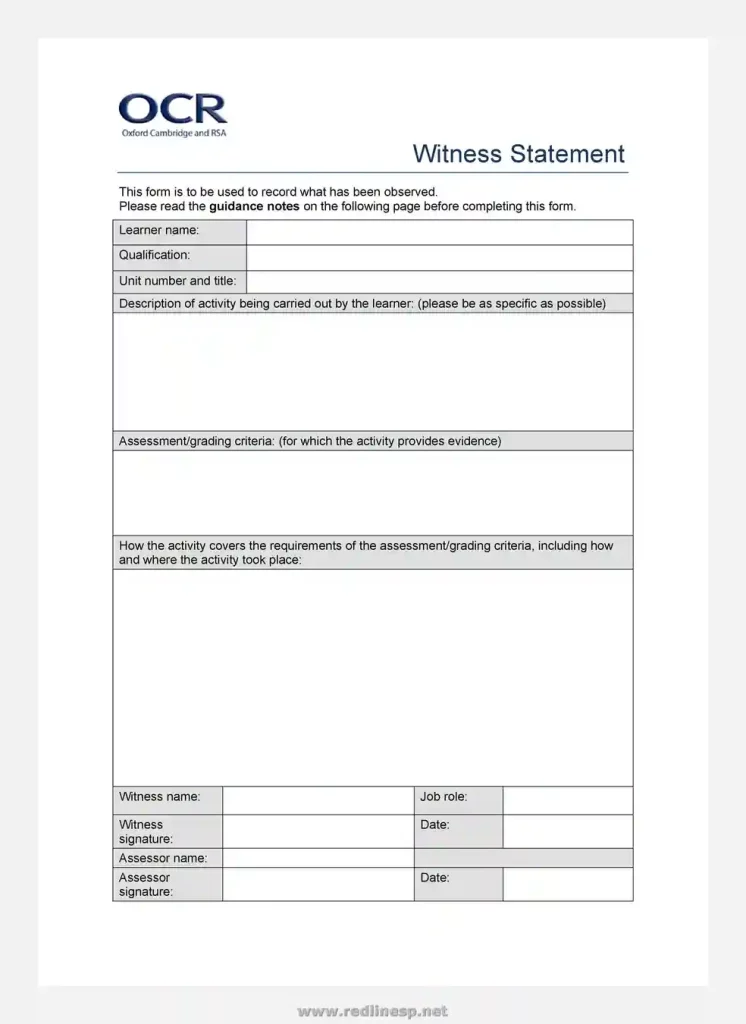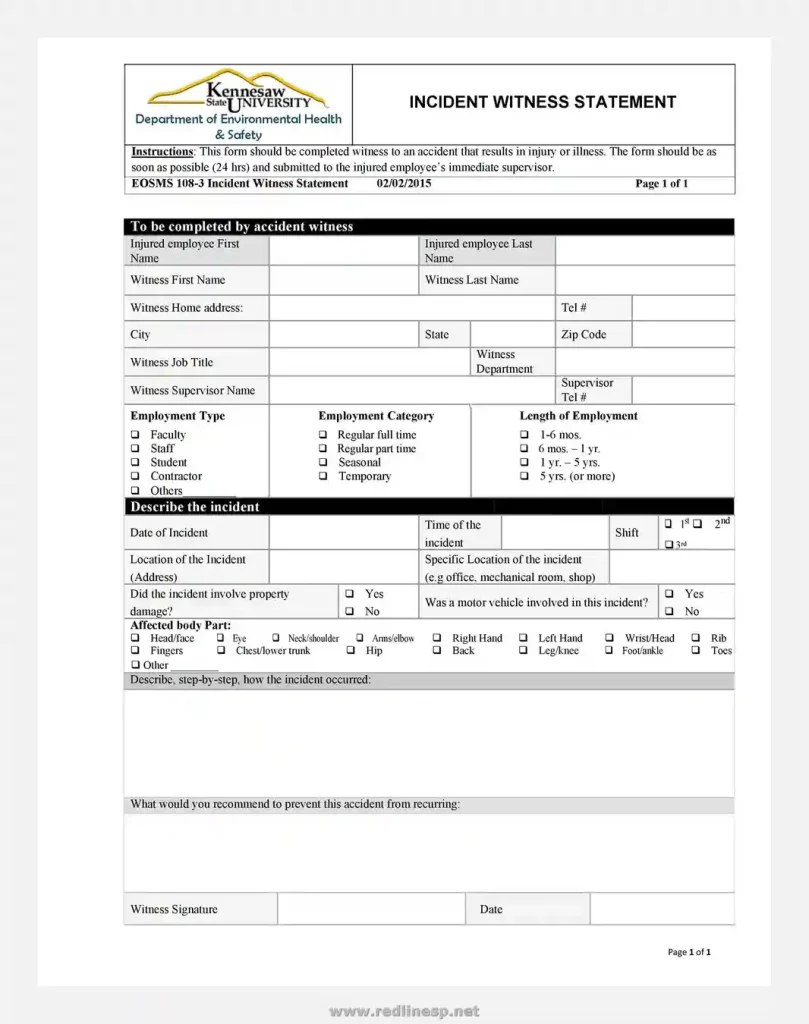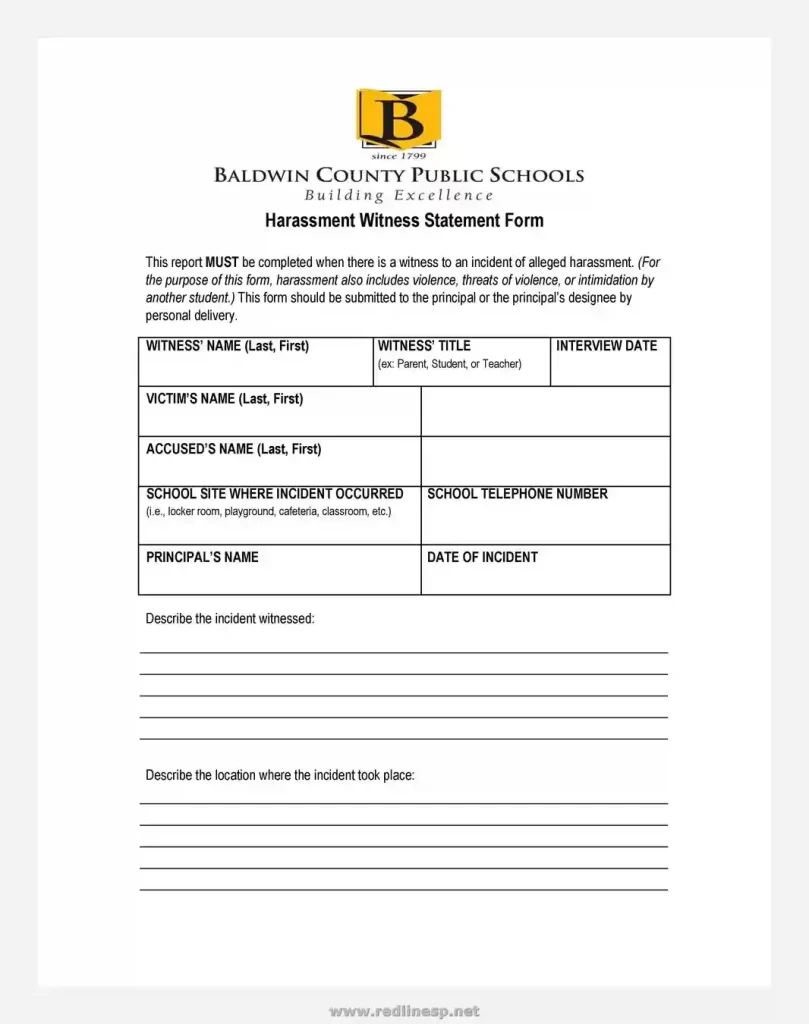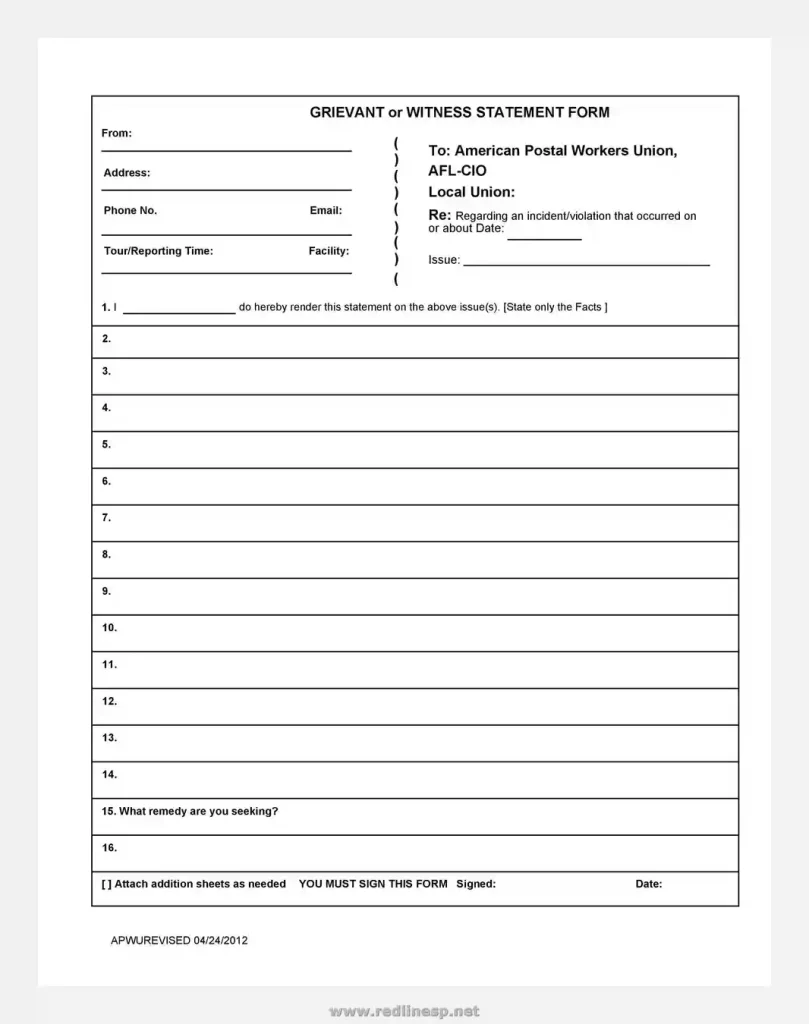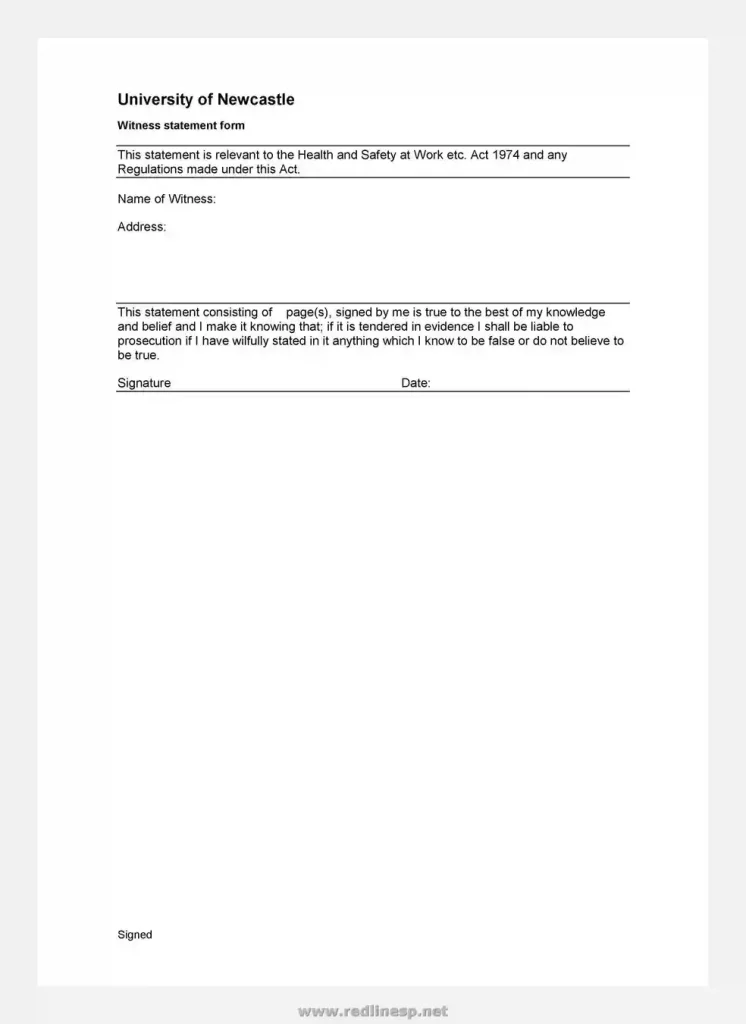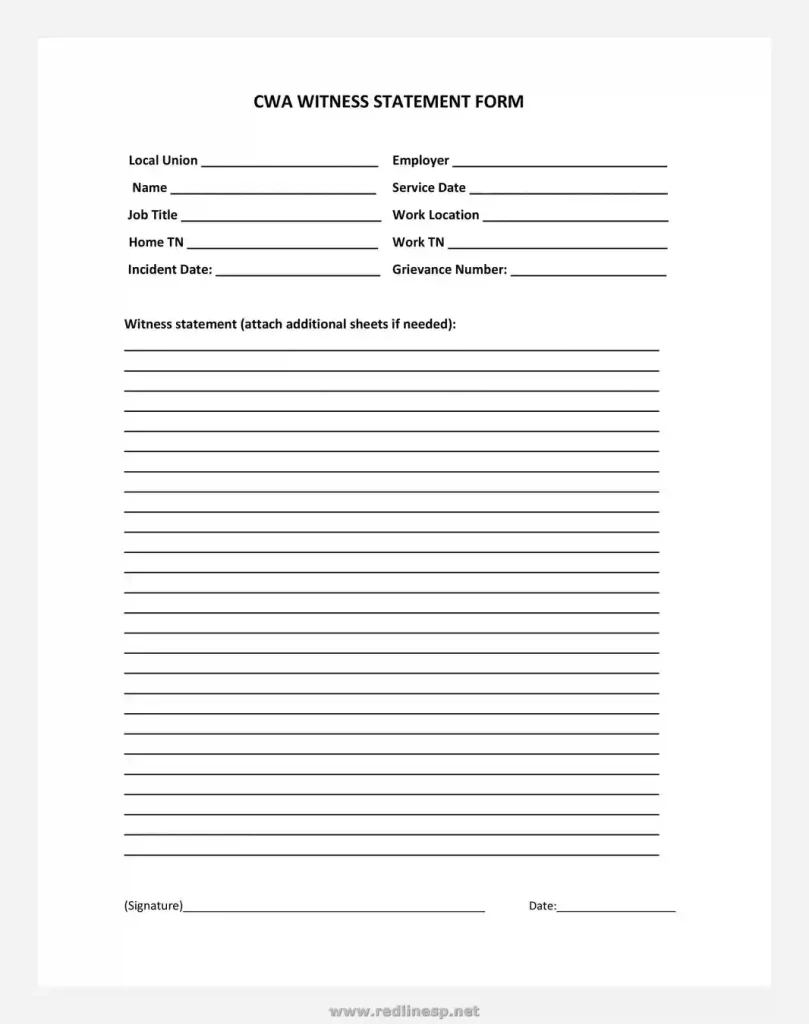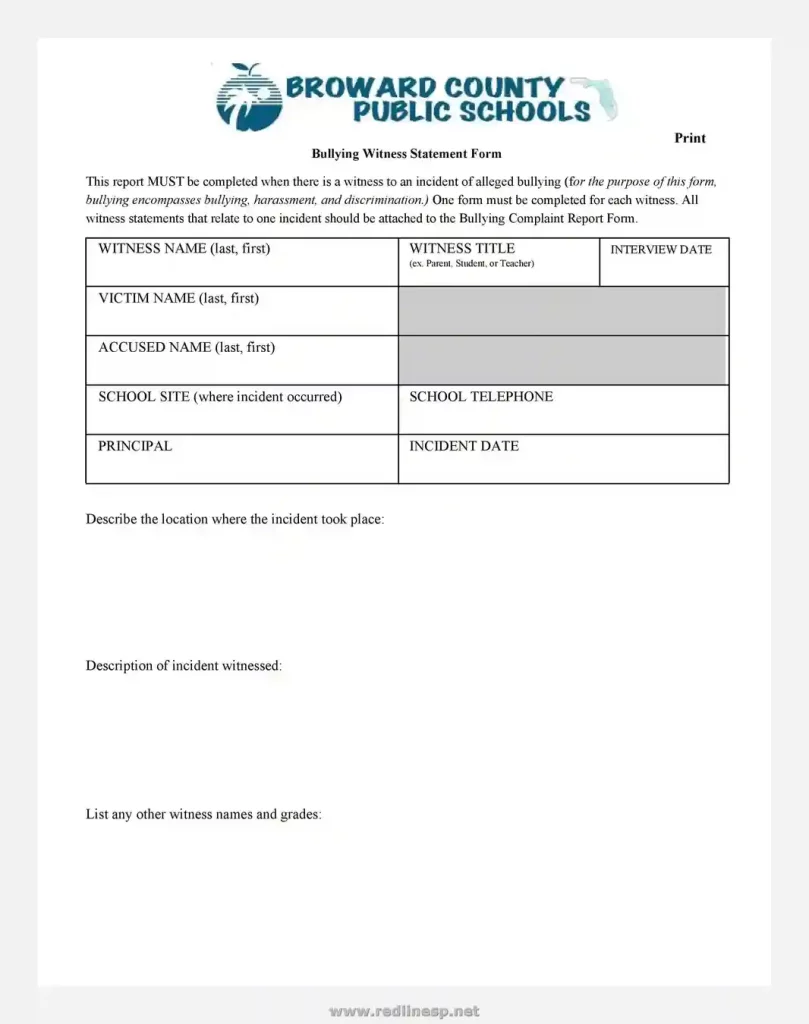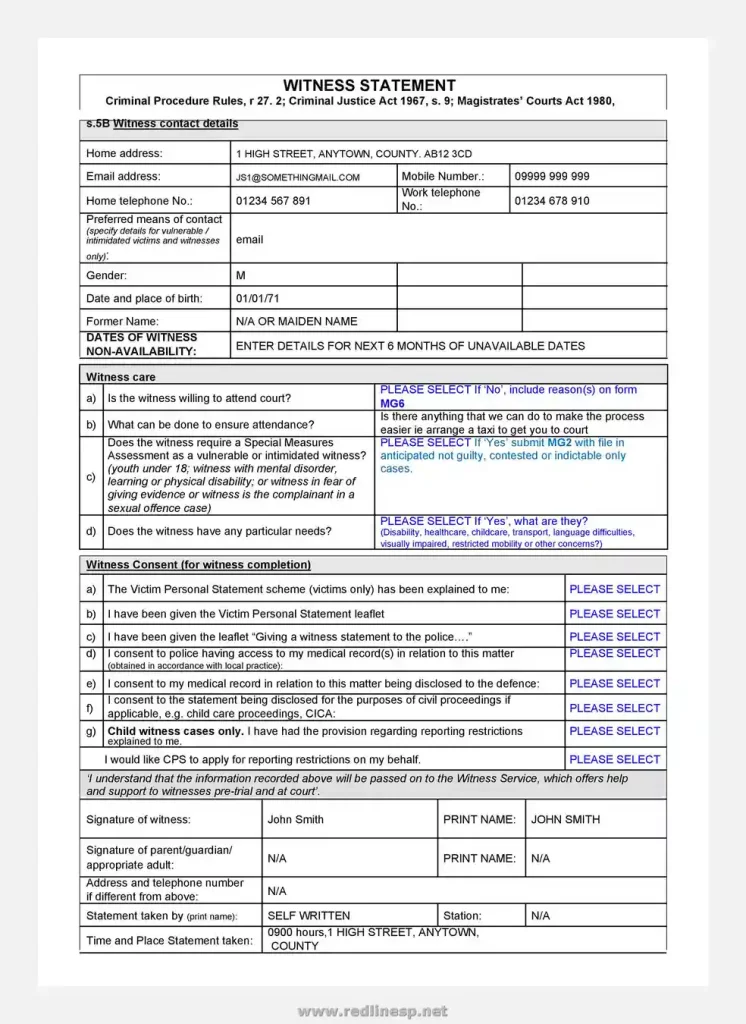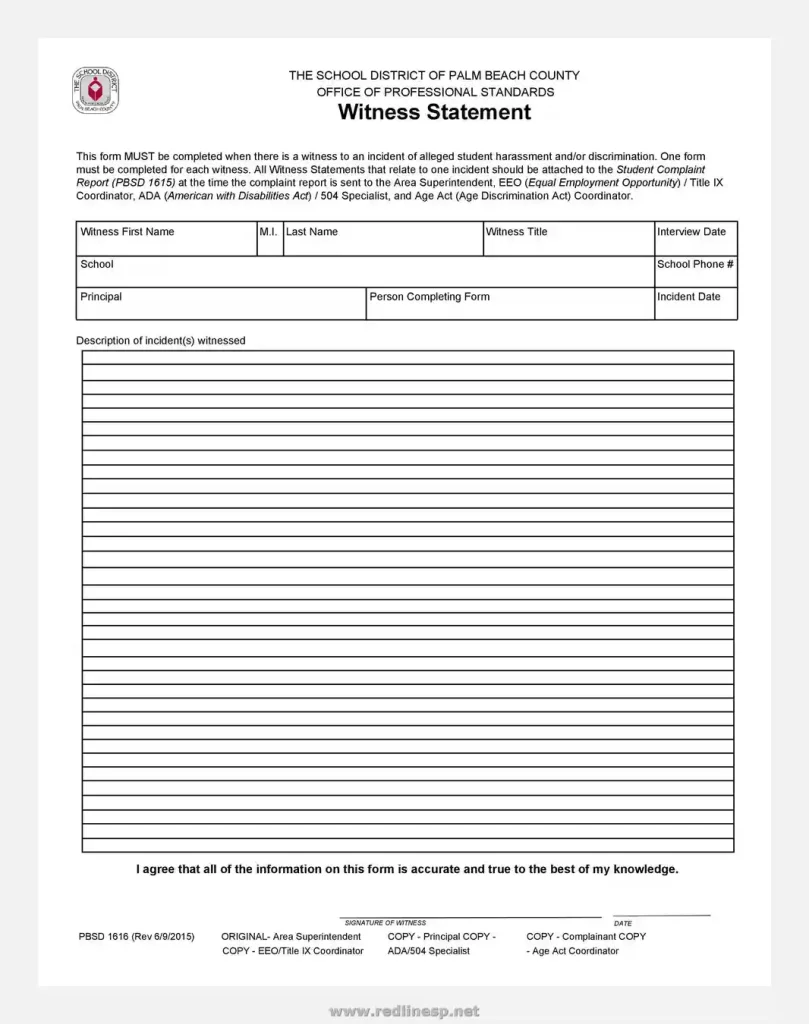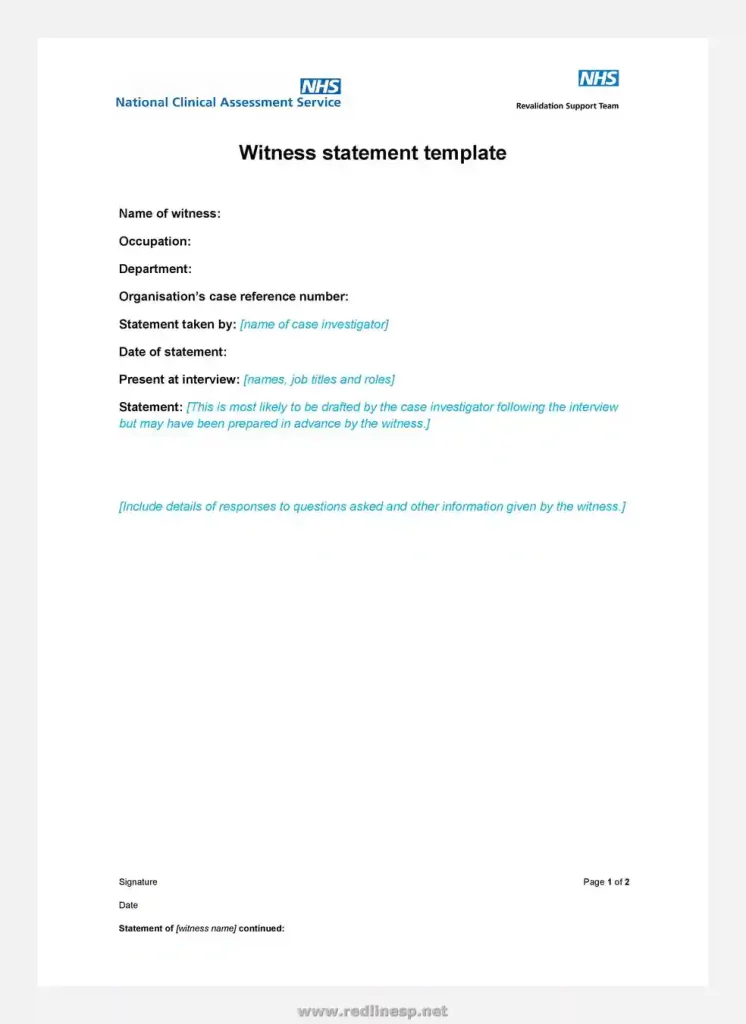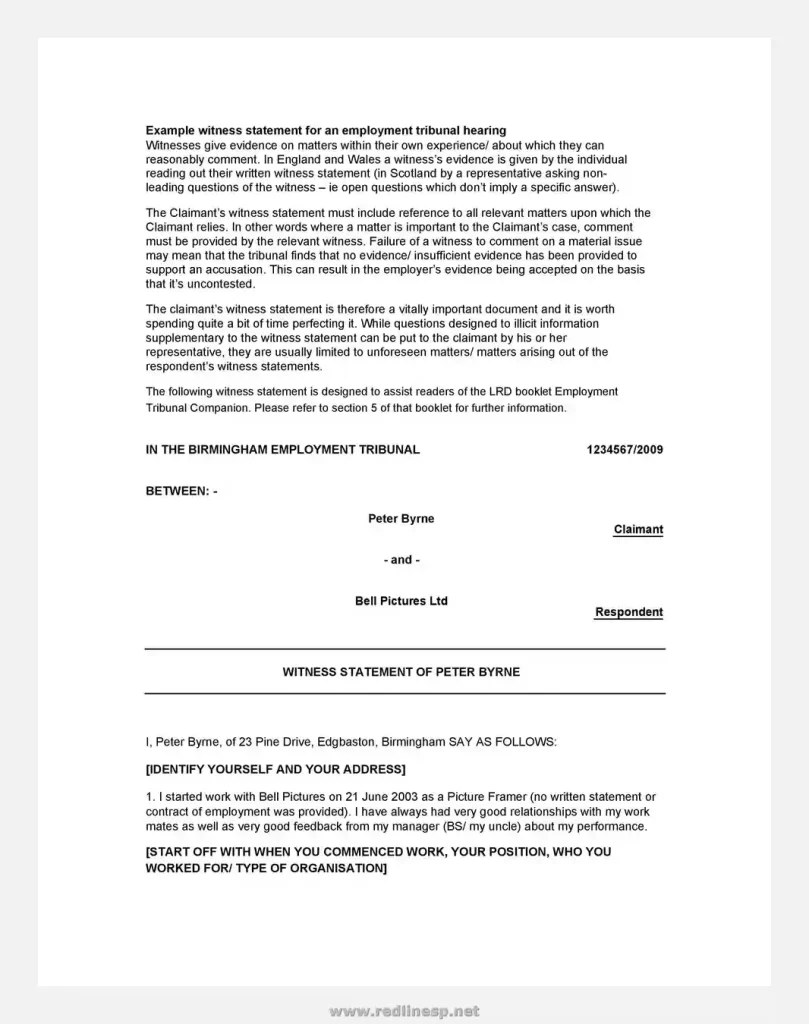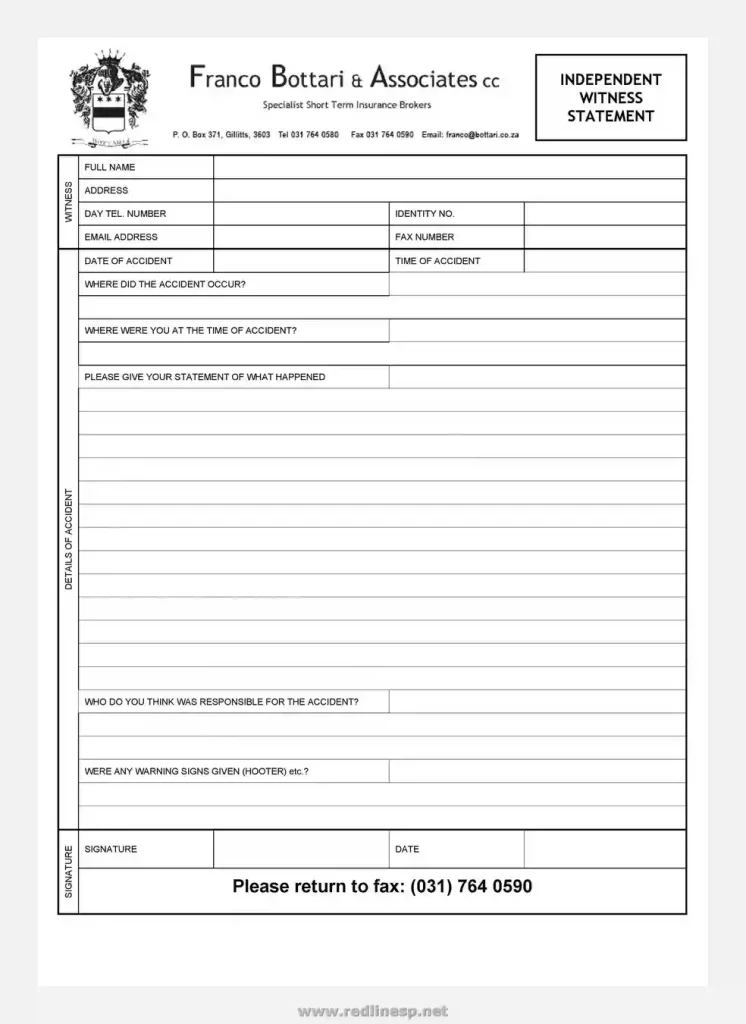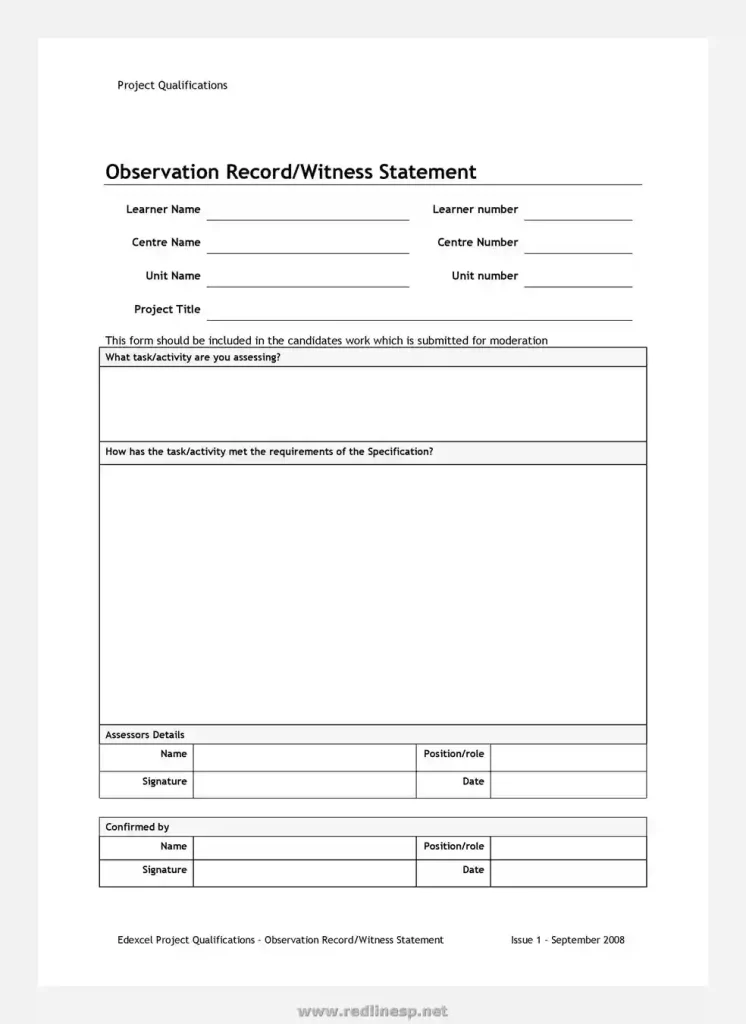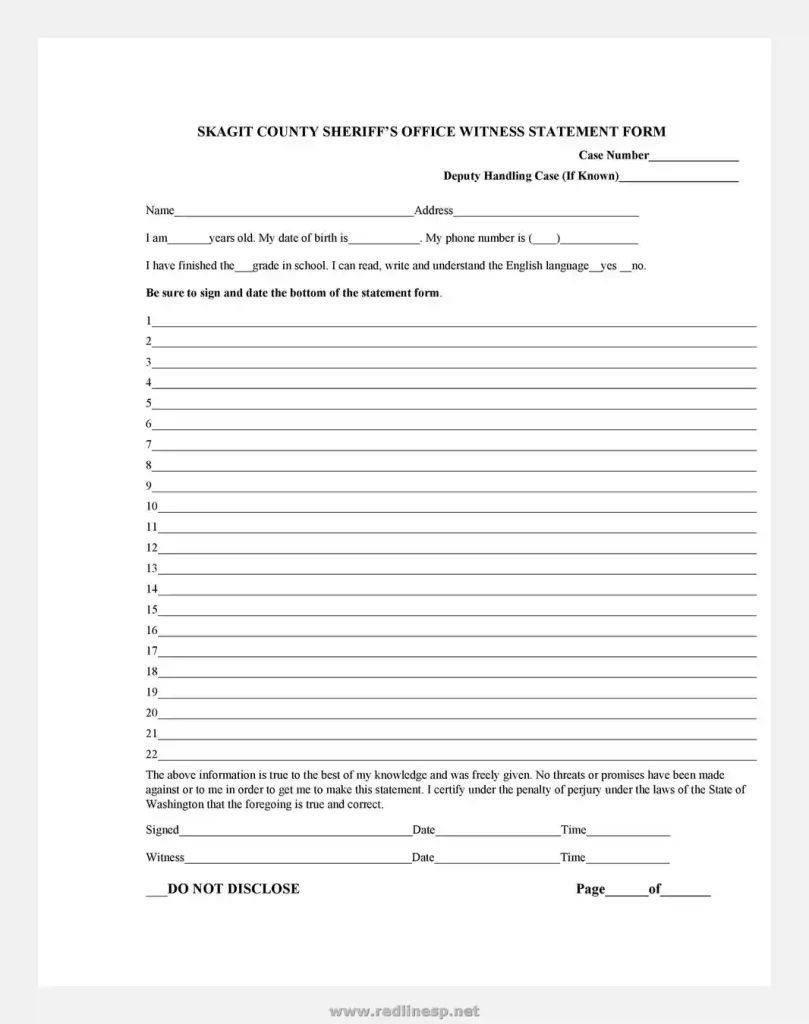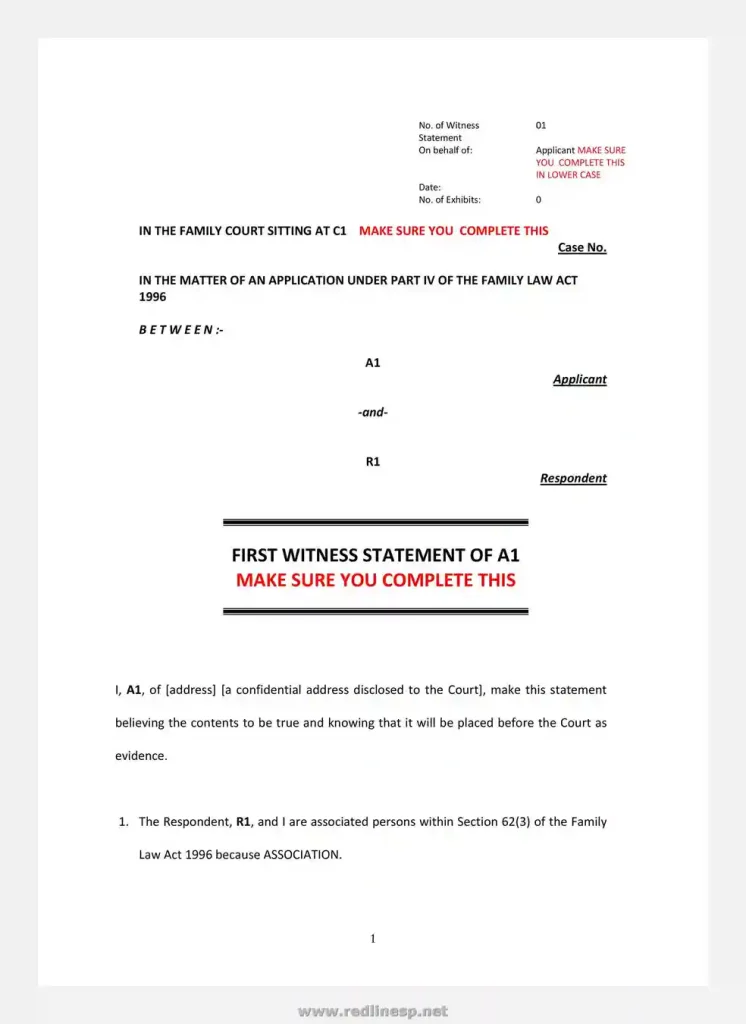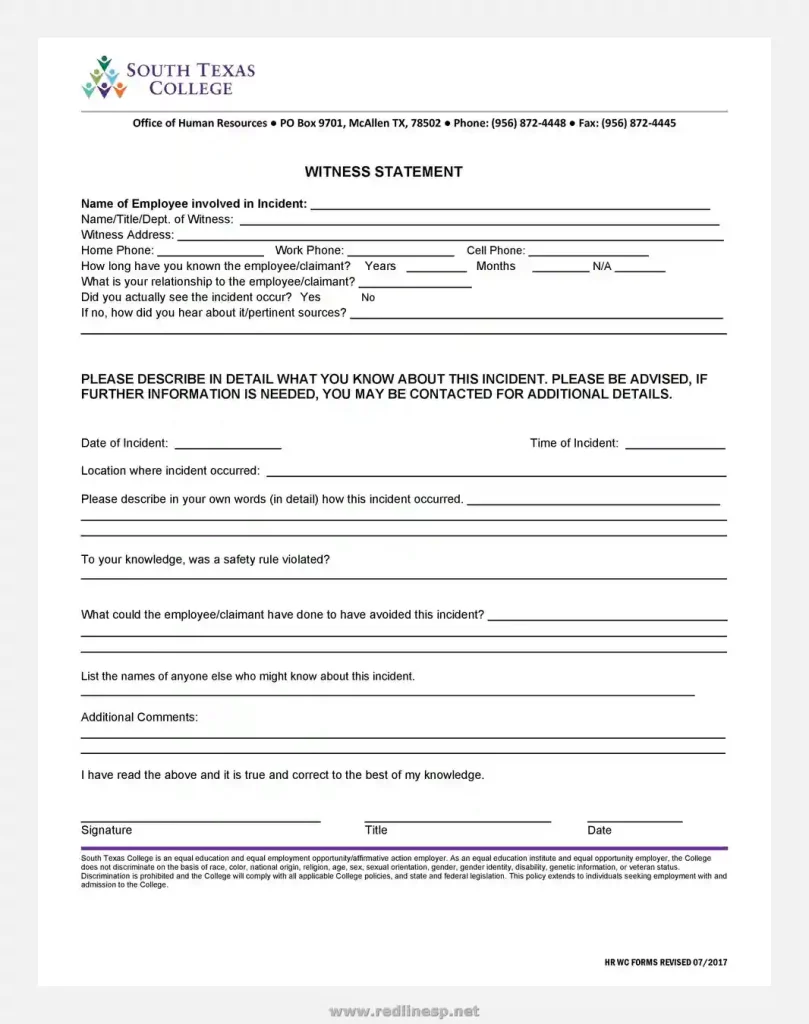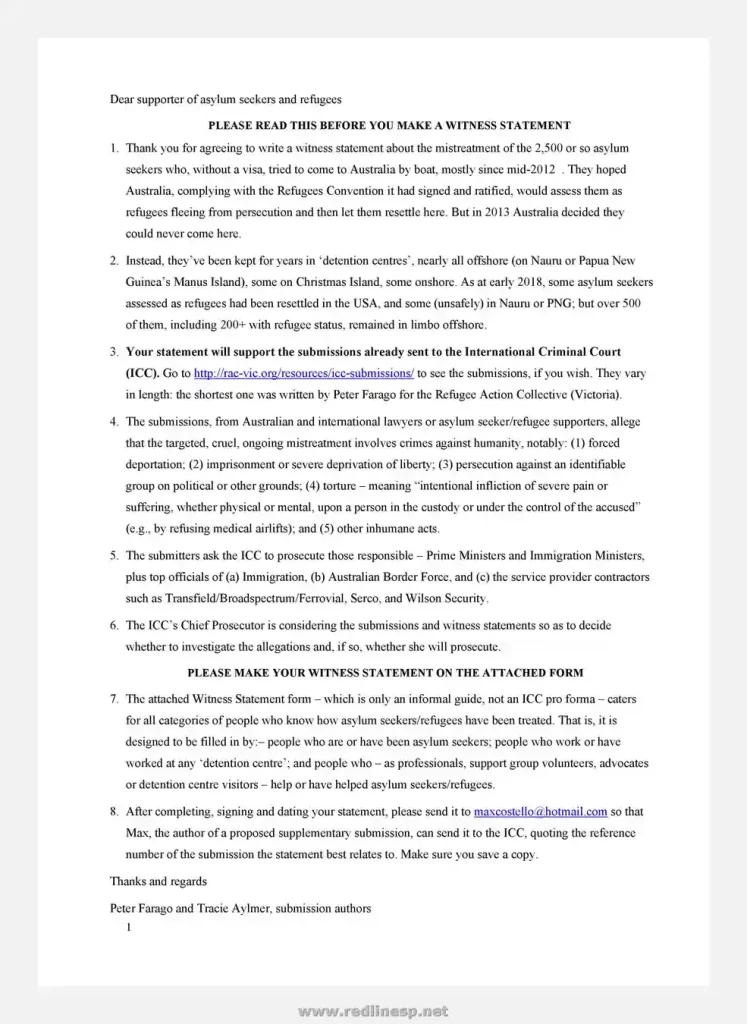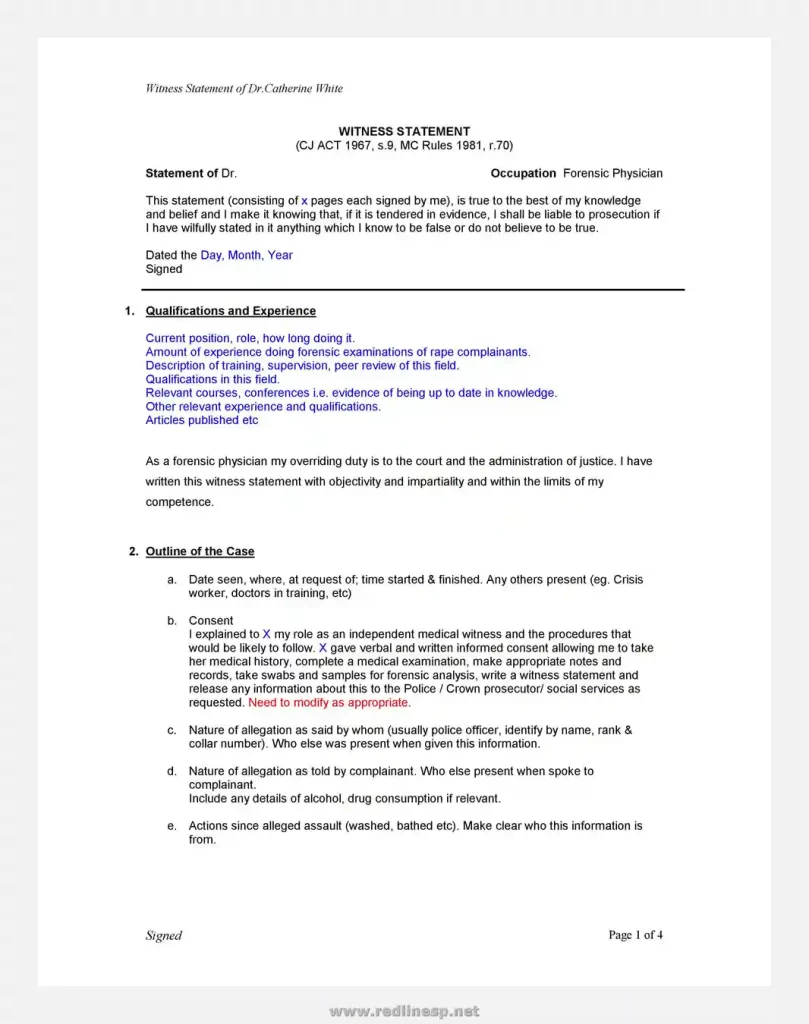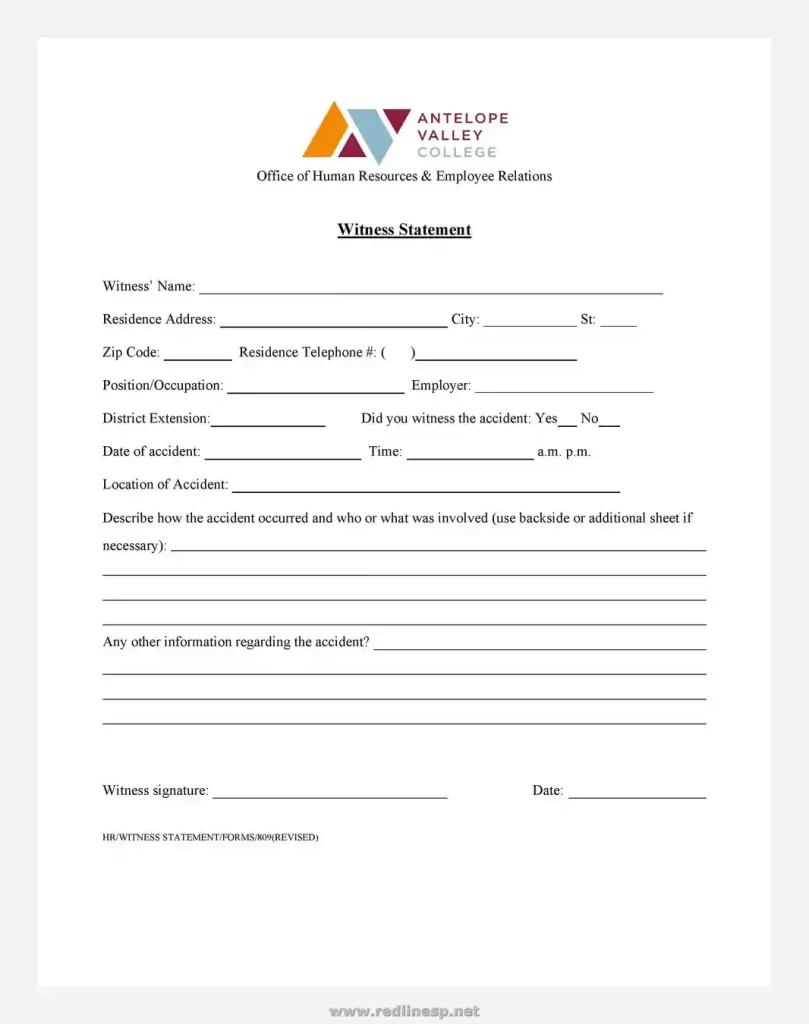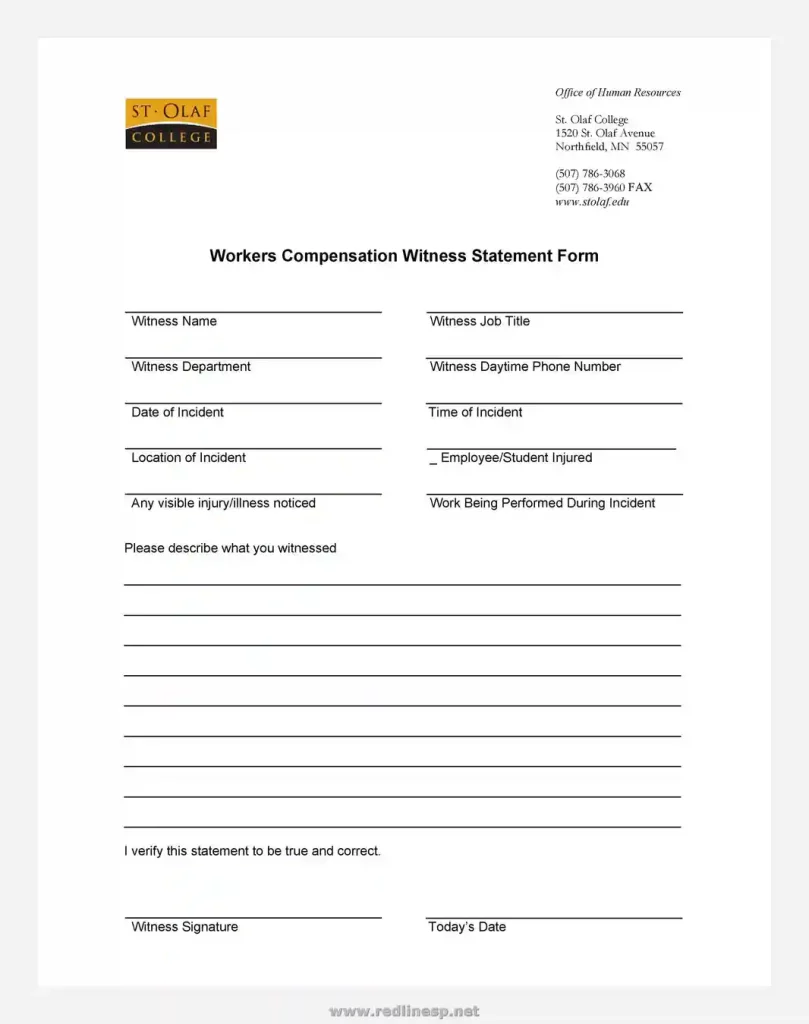Sample witness statement form is a key document in legal cases. It helps judges and lawyers understand what happened during an event. This form is very important in both civil and criminal cases.
Understanding a Witness Statement Form
A witness statement is a written account of what someone saw or heard during an event. It helps explain the facts of a case. Anyone who witnessed the event can provide a statement. These statements are also called legal testimonies or affidavits.
Witness Statement Form
Why is a Witness Statement Important?
A witness statement is very important in legal cases. Here are the reasons why:
- Tells the Story:
- What Happened: A witness statement tells what happened during an event. This helps everyone understand the situation better.
- Details Matter: It includes important details that might need to be included. These details can make a big difference in a case.
- Helps the Court:
- Evidence: The statement is used as evidence in court. This means it helps prove what happened.
- Supports the Case: It can support the case by providing a clear event account. This helps the judge and jury make a decision.
- Clear Information:
- Easy to Understand: A well-written statement is clear and easy to understand. This helps everyone, from lawyers to the judge, follow along.
- Avoids Confusion: By explaining things clearly, the statement helps avoid confusion about what happened.
- Protects the Truth:
- Honest Account: It provides an honest account of the event, helping to ensure the truth is known.
- Legal Record: The statement becomes a part of the legal record. This means it is kept for future reference.
Who Can Provide a Witness Statement?
Anyone who saw or heard an event can provide a witness statement. Here are the types of people who can give a statement:
- Eyewitnesses:
- Saw the Event: People who saw what happened with their own eyes. They can describe what they saw in detail.
- Heard the Event: People who heard what happened can also give a statement. Their information can be very useful.
- Involved People:
- Participants: People who were directly involved in the event. For example, someone in a car accident can describe what happened.
- Bystanders: People who were nearby but not directly involved. They can provide a different perspective on the event.
- Experts:
- Special Knowledge: Sometimes, experts can give a statement. For example, a doctor might describe an injury, and a mechanic might explain car damage.
- Helps the Case: Expert statements can provide important technical information that helps the case.
- Relatives and Friends:
- Know the People: Family members or friends who know the people involved can give a statement. They can describe behaviors or conditions leading up to the event.
Sample Witness Statement Form
Components of a Witness Statement Form
To write a good witness statement, you must include several important details. These details help others understand exactly what happened. Here are the key components:
Your Personal Information:
- Name: Write your full name.
- Address: Include your home address.
- Contact Information: Add your phone number or email.
Event Details:
Date: Write the exact date when the event happened.
Location: Include where the event took place. Be specific, like the name of a street or building.
Description of the Event:
- What You Saw or Heard: Clearly describe what you witnessed. Use simple words to explain.
- Who Was Involved: Mention the names of people you saw if you know them.
- Sequence of Events: Explain what happened first, next, and last.
Other Relevant Information:
- Weather Conditions: If the weather affected what you saw, include it.
- Time of Day: Note if it was morning, afternoon, or night.
Make sure your statement is easy to read. Write in short, clear sentences. Avoid long, complicated words. Check that all details are correct. This helps others trust your statement.
Types of Witness Statement Forms
Witness statements can be used for different situations. Here are some common types of witness statement forms:
Incidents:
- Accidents: These forms are used when someone witnesses an accident, such as a car crash or a slip-and-fall. The statement explains what happened and who was involved.
- Fights or Arguments: If you witness a fight or an argument, you can use this form to describe what you saw and heard. This helps show what happened and who was there.
Paternity:
- Fatherhood Cases: These forms are used to determine a child’s father. Witnesses can provide statements about relationships and events that help prove paternity.
- Support and Custody: Paternity statements can also be used in court to help decide child support and custody cases.
Service:
- Military Service: These forms document events or actions during military service. Witnesses can describe what happened and who was involved.
- Community Service: If you see someone doing community service, you can use this form to describe their work and how they helped.
Office Workers:
- Workplace Incidents: If something happens at work, like an injury or a disagreement, office workers can use these forms to describe the event.
- Performance Reviews: Witness statements can also describe an employee’s performance. This can help with promotions or resolving issues.
Students:
- School Incidents: These forms are used when something happens at school, like bullying or a fight. Students and teachers can describe what they saw to help the school take the right action.
- Field Trips: If something happens during a school field trip, students can use these forms to describe the event. This helps the school understand what happened and keeps students safe.
Each type of witness statement form is important.
Witness Statement Form Template
Writing a Witness Statement
Writing a witness statement might seem hard, but it’s important. Here’s a simple guide to help you:
- Start with Your Details:
- Write your full name at the top.
- Add your address and contact information. This helps people reach you if they have questions.
- Describe the Event:
- Write the date and location of the event.
- Use clear and simple words to describe what you saw or heard. Be specific about who was there and what they did.
- Explain What You Saw or Heard:
- Write a step-by-step account of what happened. Start from the beginning and go to the end.
- Include important details, like the time of day and special conditions (like the weather).
- Check Your Statement:
- Read your statement to make sure it’s clear and makes sense.
- Ask someone else to read it and check for mistakes. This can help make your statement better.
You can write your statement by hand or type it on a computer. Both ways are fine. Just make sure it’s neat and easy to read. If you’re unsure how to start, look at examples of witness statements. These can give you ideas on how to organize your statement.
After Submission
After you submit your witness statement, several important things happen. Understanding these steps can help you know what to expect:
- Review by Lawyers and Judges:
- Reading the Statement: Lawyers and judges will read your statement to understand what you saw or heard.
- Checking Details: They will check the details in your statement to ensure everything is clear and accurate.
- Possible Questions:
- In Court: You might be asked to come to court. There, lawyers might ask you questions about your statement. This is to make sure they understand everything you wrote.
- Clarifying Points: Be ready to explain parts of your statement. This helps the court understand what happened.
- Using the Statement in Court:
- Evidence: Your statement becomes part of the case’s evidence, which means it helps the judge and jury decide what happened.
- Supporting the Case: Your clear and detailed statement can support the case. It helps show the truth of what happened.
- Protecting Your Privacy:
- Confidentiality: Some of your statements might be kept private to protect your identity. This depends on the case and the laws in your area.
You can feel more confident about what happens after you submit your witness statement.
Sample Witness Statement Form
Are Witness Statements Used in Both Civil and Criminal Cases?
Yes, witness statements are used in both civil and criminal cases. Here’s why they are important in each type of case:
- Civil Cases:
- Settling Disputes: In civil cases, people often disagree about things like contracts, property, or injuries. A witness statement can help explain what happened and who is responsible.
- Supporting Evidence: Your statement provides important evidence. It helps the judge or jury understand the facts of the case. This can help decide who wins the case.
- Criminal Cases:
- Proving Guilt or Innocence: In criminal cases, the court must decide whether someone broke the law. A witness statement can show what the accused person did.
- Detailing Events: Your statement helps the court understand the events.
Your clear and detailed witness statement is very important in both cases. It helps the court understand the truth and make fair decisions.
Common Mistakes to Avoid
It’s important to avoid common mistakes. Here are some tips to help you:
- Guessing Details:
- Stick to the Facts: Only include details you are sure about. Refrain from guessing or making up details. If you need more clarification onomething, it is better to leave it out.
- Be Honest: Always tell the truth. Guessing or lying can cause problems in the case.
- Including Unrelated Information:
- Stay Focused: Only include information that is directly related to the event. Do not add extra details that are not important to the case.
- Be Clear and Simple: Write in clear and simple sentences. This helps others understand what you are saying.
- Being Vague:
- Be Specific: Give specific details about what you saw or heard. Avoid using vague words like “a lot” or “many.”
- Describe Clearly: Describe the event clearly so others can picture what happened.
- Forgetting Important Details:
- Include All Key Information: Include all important details, like names, dates, and locations. This helps make your statement complete.
- Double-check: Read your statement again to ensure you remember everything important.
- Not Organizing Your Statement:
- Use a Clear Structure: Organize your statement clearly and logically. Start with your details, then describe the event step by step.
- Make it Easy to Read: Use short paragraphs and headings to make your statement easy to read.
Avoiding these common mistakes will help make your witness statement clear, accurate, and useful in the legal process.
Witness Statement Form Example
When to Seek Legal Advice
Sometimes, getting help from a lawyer when writing your witness statement is a good idea. Here are some situations when you should consider seeking legal advice:
Unsure About What to Include:
- Getting Help: If you need help deciding what details to include in your statement, a lawyer can help. They can advise you on what is important and what to leave out.
- Understanding Legal Terms: Lawyers can also explain any legal terms or processes you don’t understand. This helps make sure your statement is clear and accurate.
Complex Situations:
- Complicated Events: If the event you witnessed is complicated, a lawyer can help you describe it clearly. They can help you organize your thoughts and ensure you include all important details.
- Legal Implications: In some cases, what you write in your statement can have legal implications. A lawyer can help you understand these implications and guide you on how to write your statement.
Legal Requirements:
- Following the Rules: Different places have different rules for witness statements. A lawyer can help ensure your statement follows all the rules and requirements.
- Notary Services: Sometimes, you need to have your statement signed by a notary. A lawyer can help you with this process.
Feeling Uncertain:
- Confidence in Your Statement: Talking to a lawyer can give you confidence if you feel uncertain about your statement. They can review your statement and suggest any changes to make it better.
- Avoiding Mistakes: Lawyers can help you avoid common mistakes and ensure your statement is clear, accurate, and complete.
Seeking legal advice can help make sure your witness statement is the best it can be.
How To Ensure Your Witness Statement is Clear and Accurate?
To make sure your witness statement is clear and accurate, follow these simple steps:
Write in Simple Words:
- Use Easy Words: Use words that are easy to understand. Avoid using long or complicated words.
- Short Sentences: Write short sentences. This makes your statement easier to read and understand.
Include All Important Details:
- Who, What, When, Where, Why, and How: Answer these questions in your statement. This helps cover all important aspects of the event.
- Specific Information: Include specific details like names, dates, and locations to make your statement more complete.
Be Honest and Accurate:
- Tell the Truth: Always be honest in your statement. Don’t guess or make up details.
- Check for Mistakes: Read your statement carefully to check for mistakes and ensure that all the details are correct.
Organize Your Statement:
- Logical Order: Write your statement in a logical order. Start with your details, then describe the event step by step.
- Use Headings: Use headings to organize different parts of your statement. This makes it easier to read.
Ask for Help:
- Get Feedback: Ask someone you trust to read your statement. They can help you find mistakes or unclear parts.
- Legal Advice: If you need help with what to include, ask a lawyer for help. They can advise you on writing a clear and accurate statement.
A witness statement form is very important in legal cases. It helps explain what happened during an event. Make sure your statement is clear and accurate. This helps the legal process run smoothly.
